Earlier this year, EPA released its FY 2022-2026 Strategic Plan.1A core element of the plan focuses on environmental compliance. In particular, EPA has established two (2) objectives for environmental compliance: (1) Hold Environmental Violators and Responsible Parties Accountable; and (2) Detect Violations and Promote Compliance. Let’s review EPA’s approach to accomplish these two objectives.
EPA has a long history in aggressive enforcement of applicable multi-media regulations for significant and complex operations. In FY21 alone, EPA issued more than $8.4 billion in compliance violations.2Local and state agencies contributed an additional $156 million in penalty assessments. EPA’s enforcement focus is primarily associated with the national compliance initiatives (i.e., EPA’s immediate priorities across multi-media programs) and longstanding high-risk activities that have historically led to significant environmental impacts (e.g., treatment, storage, and disposal sites (TSDFs); large quantity generators (LQGs) of hazardous waste; and hazardous air pollutant emissions from major sources; etc.). With the recent invigorated interest associated with Environmental Justice reviews nationwide, EPA is committing significant resources to a stronger enforcement posture.
1 – FY 2022-2026 EPA Strategic Plan, United States Environmental Protection Agency (USEPA), March 28, 2022
2 – Enforcement Annual Results for Fiscal Year 2021 | US EPA
Related Services
First Objective Strategy
To address the first objective, “Hold Environmental Violators and Responsible Parties Accountable”, EPA has identified a four (4) part strategy:
- Taking Timely Enforcement Action: Commitment to implementing an aggressive enforcement program to address noncompliance.
- Using All Appropriate Injunctive Relief Tools in Civil Enforcement Settlements: Use policy and legal tools such as advanced monitoring, audits and independent third-party verification, electronic reporting, and increased transparency of compliance data to demonstrate compliance and where appropriate, achieve compliance as soon as possible.
- Strengthening Environmental Justice Through a Robust Enforcement Program: Use of EJSCREEN, in combination with local knowledge and resources to identify communities that may be disproportionally impacted by pollution.
- Tackling Climate Change Through Enforcement: Target violators of the American Innovation and Manufacturing (AIM) Act (i.e., reduce the use of hydrofluorocarbons [HFCs] that are potent GHGs), the Renewable Fuel Standard (i.e., increase the use of bio-based fuels), and regulations that apply to oil and gas sources and landfills to aggressively address climate change and GHG emissions.
These steps are intended to quickly identify and address environmental non-compliance scenarios that have potential or actual negative impact on the environment and applicable communities (e.g., threatening or contaminating soil and waterbodies, releasing toxics into the air, contaminated drinking water, etc.). By accelerating the discovery and mitigation of serious environmental non-compliance issues, EPA believes this approach will protect natural resources and potentially impacted communities and level the playing field for businesses that proactively focus on meeting and maintaining compliance with all applicable environmental permits, requirements and regulations.
Second Objective Strategy
The second objective, “Detect Violations and Promote Compliance”, that EPA has established to improvement environmental compliance focuses on the use of effective compliance tools (e.g., inspections, monitoring activities, and technical assistance supported by evidence and advanced technologies) to evaluate and monitor the regulated businesses and communities. Similar to the first objective, EPA has identified a four (4) part strategy for the second objective:
- Producing Timely Inspection Reports: Reduce the time from when EPA conducts an on-site inspection to the time that EPA provides the facility with a completed inspection report. Address compliance issues quickly to generate a direct benefit to the affected communities regarding alleged violations.
- Focusing Compliance Assurance Activities on Communities, Especially Those with Environmental Justice Concerns: Increase the percentage of inspections at facilities affecting overburdened communities. Advance the detection and resolution of noncompliance activities in communities with environmental justice concerns.
- Improving Compliance Assurance Data Management and Enforcement Targeting Capabilities: Effective use of data management and data science capabilities to improve compliance and enforcement. Improve the collection and management of compliance monitoring information through modernization of existing data systems and creation of new tools to streamline the compliance monitoring process.
- Tackling Climate Change Through Compliance Assurance: Advance the efforts to address climate change mitigation and adaptation issues through targeting, monitoring, and technical assistance (e.g., direct monitoring and targeting efforts of emission sources with the greatest potential for noncompliant emissions of GHGs; technical assistance on climate resilience to wastewater and drinking water facilities; and vigorous enforcement of regulations to prevent and deter the illegal importation of HFCs).
EPA’s strategic efforts to achieve the second objective relies upon the quick detection and resolution of non-compliance issues within the regulated community. Addressing non-compliance conditions as quickly as possible eliminates future environmental impacts and releases, especially upon communities with existing environmental justice concerns; uses technologies and electronic data reporting results to quickly identify non-compliance conditions; and educates the regulated community as needed on the applicable environmental requirements of concern and how to achieve and maintain compliance.
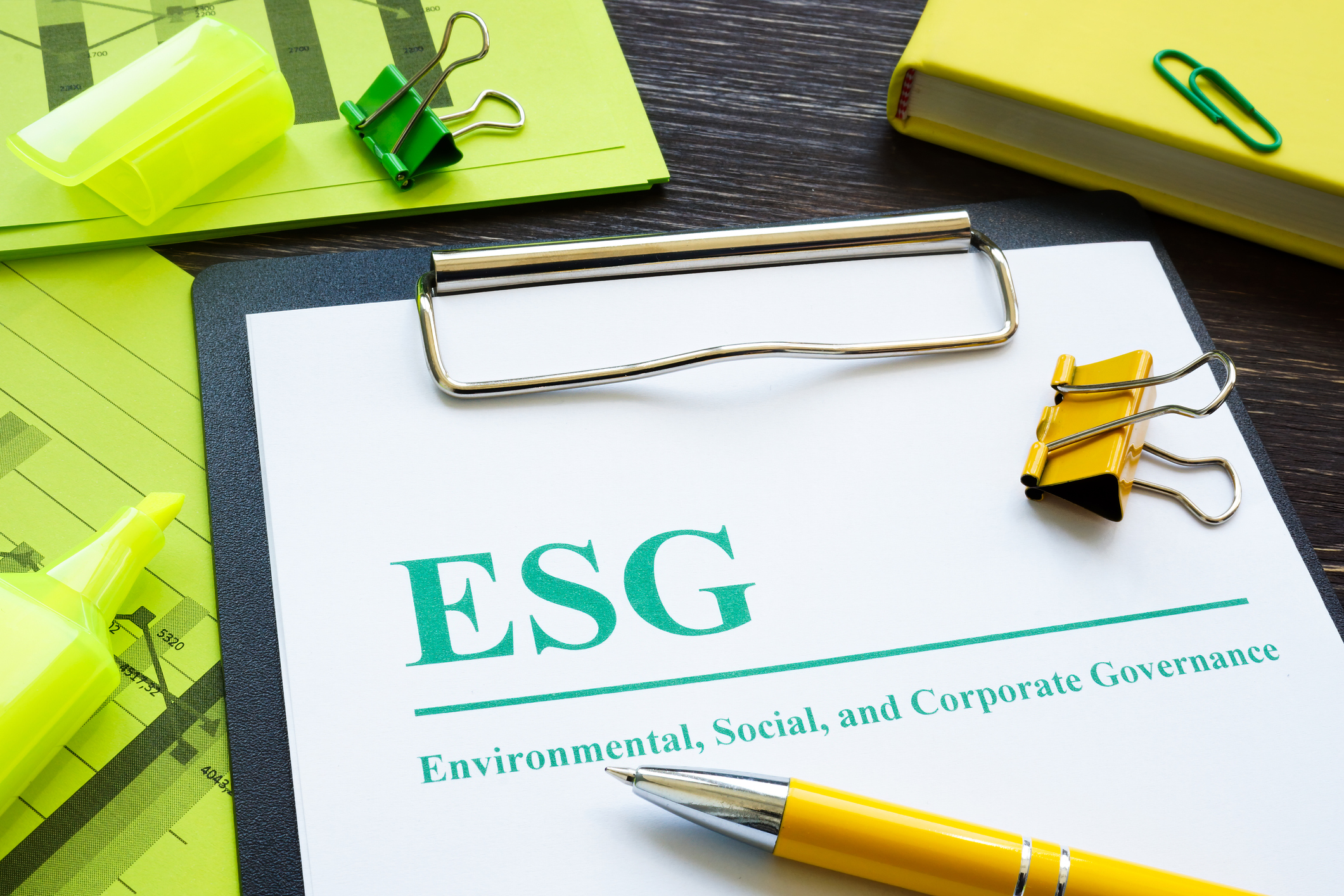
Conclusion
The regulated community should understand EPA’s enforcement strategy for the next four years and assess their operations to determine compliance and conformance with EPA’s objectives. A proactive stance towards ensuring environmental compliance as a baseline performance standard strengthens a company’s reputation in the community, raises awareness and improvement from its workforce and contributes to stronger financial performance by avoiding penalties and extended focus from the regulatory agencies. In addition, companies that proactively evaluate their potential impacts on the communities where they operate will benefit from the insight gained and better navigate their future. This evaluation should consider new technologies and processes that lead to minimizing or eliminating their various environmental impacts. These actions will demonstrate the company’s proactive steps to engage and support the goals and objectives of environmental justice.
Partager nos perspectives
Nos praticiens partagent leurs idées et leurs points de vue sur les tendances et les défis qui façonnent le marché.

Naviguer dans les risques juridiques et réglementaires des contaminants chimiques dans les aliments pour animaux de compagnie
novembre 14, 2024
Les propriétaires d’animaux de compagnie s’efforcent de plus en plus de s’assurer que leurs compagnons maintiennent un régime alimentaire nutritif.
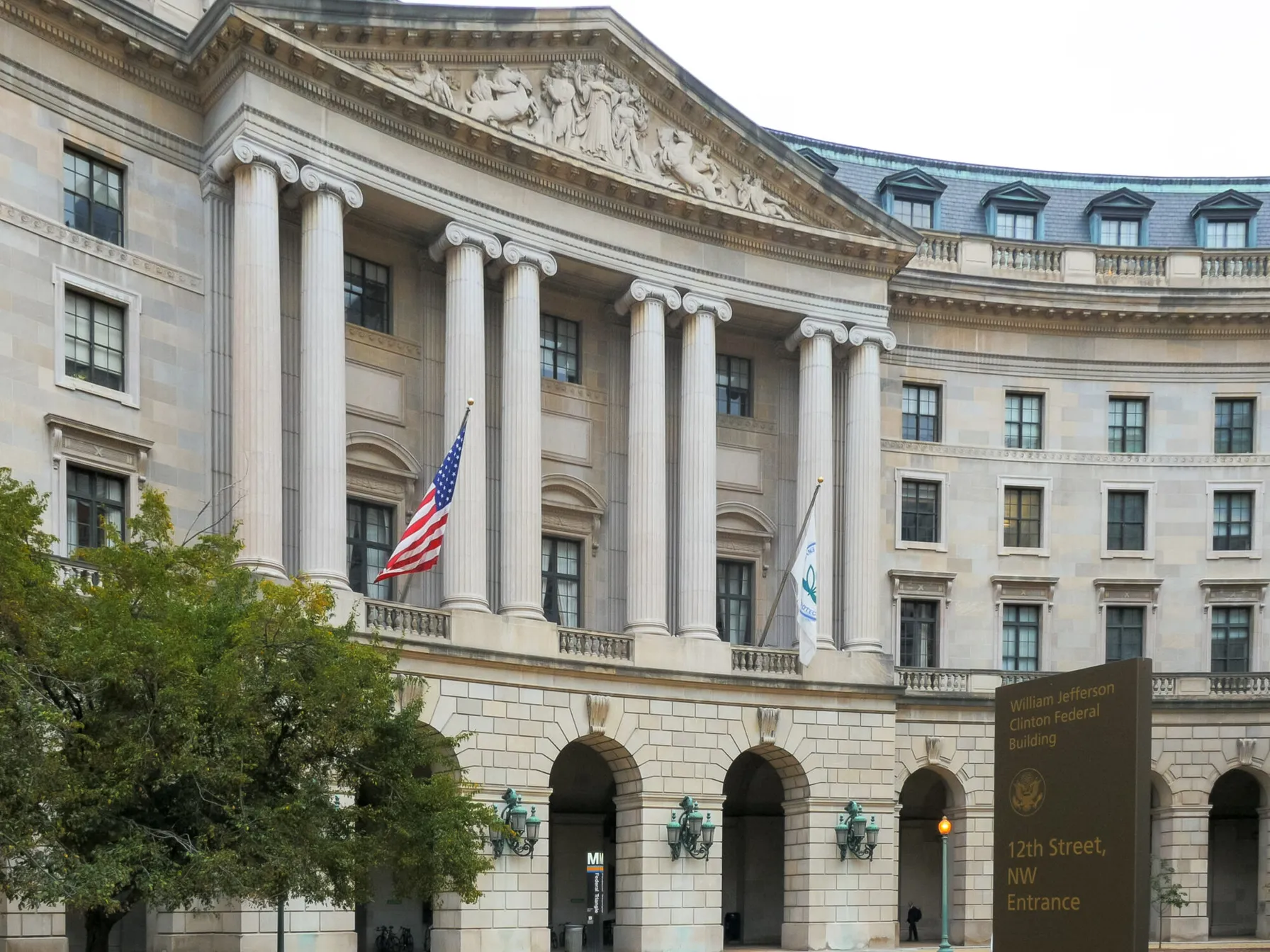
TSCA Section 8(a)(7) PFAS Reporting and Recordkeeping
septembre 16, 2024
L’EPA a accordé une prolongation de huit mois pour les exigences de déclaration et de tenue de registres de la Toxic Substances Control Act (TSCA) pour les substances perfluoroalkyliques et polyfluoroalkyliques (SPFA).

Changes to EPA’s Risk Management Program (RMP) Regulations Are Coming
avril 14, 2023
Changes to the Risk Management Program (RMP) regulations were signed into a final rule on February 27, 2024, by EPA Administrator Michael S. Regan.

EPA Finds Trichloroethylene Presents Unreasonable Risk in Final Risk Evaluation
avril 6, 2023
On Jan 9, 2023, the United States Environmental Protection Agency (EPA) revised the Toxic Substance Control Act (TSCA) to reflect a new risk determination for trichloroethylene (TCE).

Utilisation proposée d’un indice de danger pour le Règlement national sur l’eau potable primaire (NPDWR) sur les SPFA
avril 4, 2023
La LCM et la MCLG proposées pour les quatre SPFA, LE PFNA, le PFHxS, le GenX et le PFBS considèrent leur toxicité comme additif. L’EPA a proposé un IH de 1,0 en tant que MCL et MCLG pour les quatre SPFA combinés.

Using the R2 Guidance in Indiana
mars 21, 2023
TRC outlines the new R2 Guidance in Indiana

Setting the Stage for Effective Environmental Compliance Recordkeeping
mars 21, 2023
Recordkeeping is an integral component of demonstrating compliance with environmental regulations.

Routinely Evaluating the Health & Effectiveness of Integrated Systems to Manage EHS/ESG Risks – Part 2
mars 15, 2023
Systematic monitoring and continuous improvement is important to achieve an effective EHS/ESG management system within an organization.

Recognizing, Identifying, Prioritizing and Addressing EHS & ESG Risks
mars 3, 2023
A clear view and understanding of the environmental, health and safety (EHS) risks created by a business is paramount to its success and longevity.

Routinely Evaluating the Health & Effectiveness of Integrated Systems to Manage EHS/ESG Risks – Part I
mars 1, 2023
Once established, an EHS/ESG management system must be routinely evaluated to ensure it remains effective to identify and control risks, as well as accommodate and adjust for changes that occur to/within the organization.

Consequences of a Lowered NAAQS for PM2.5
février 16, 2023
TRC breaks down the significance of EPA lowering the NAAQS for PM₂.₅
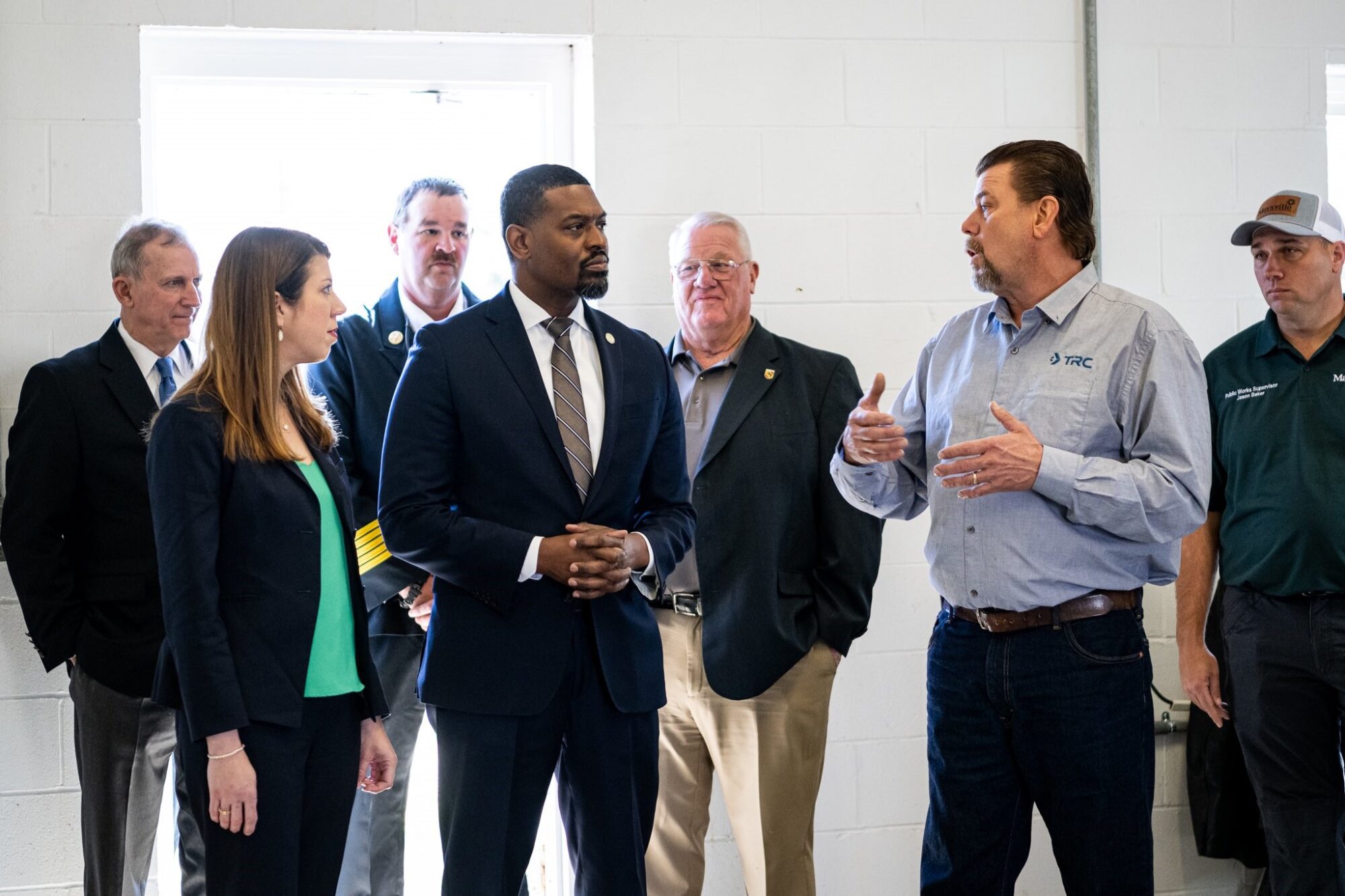
EPA Announces $2 Billion in Funding to Address Emerging Contaminants in Drinking Water
février 14, 2023
Environmental Protection Agency Administrator Michael Regan announced $2 Billion in infrastructure funding to help the nation’s rural water supplies.
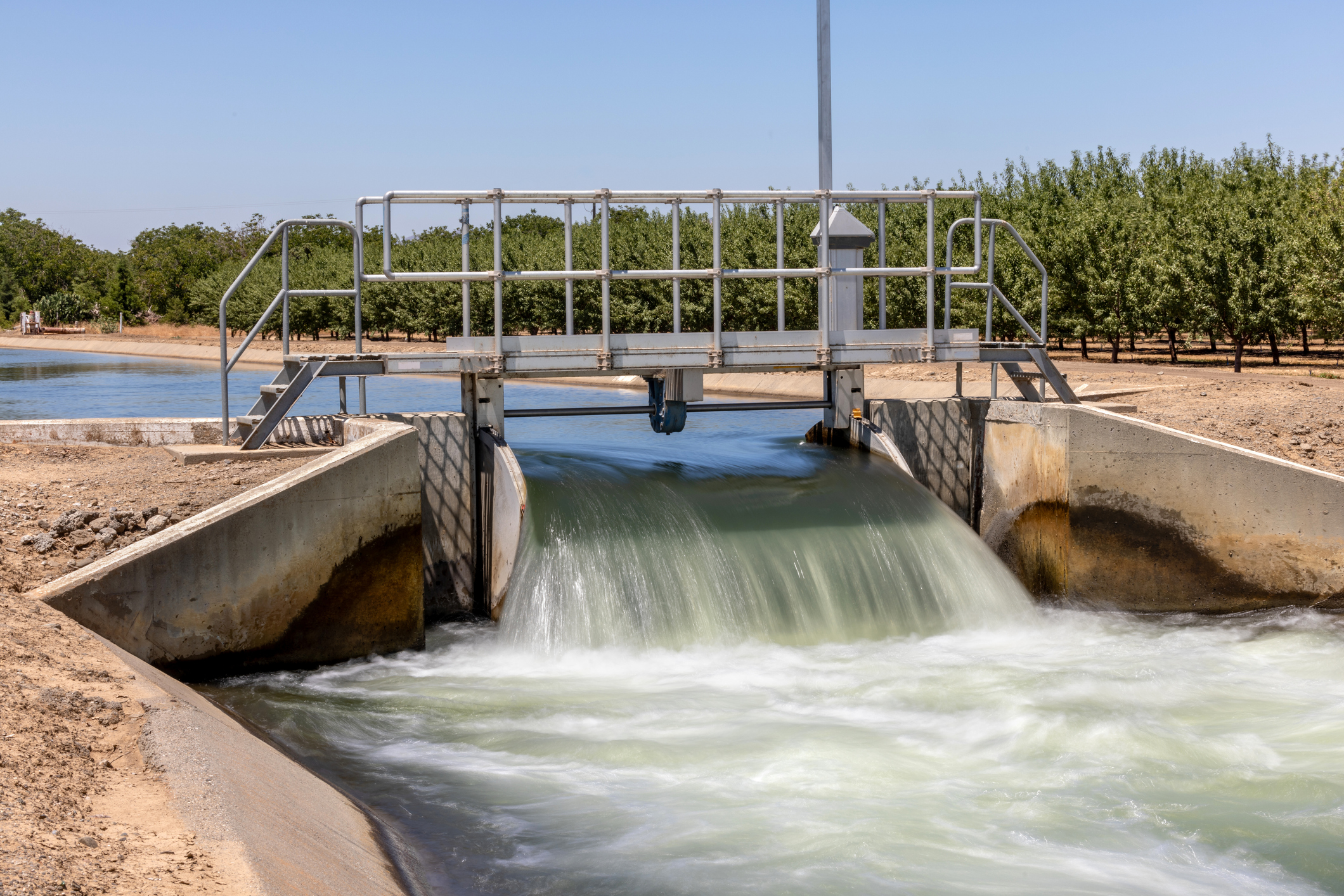
EPA Publishes Effluent Guidelines Program Plan 15
février 14, 2023
The EPA announced updated effluent limitations guidelines under Plan 15, focusing on the evaluation and rulemaking process for per- and polyfluoroalkyl substances (PFAS) discharges.

Phase I ESA ASTM Standard Update: The Wait is Over
Décembre 21, 2022
The USEPA published a Final Rule making the ASTM E1527-21 Phase I ESA standard AAI compliant.

Equipment Decontamination and Replacement of Legacy Aqueous Film Forming Foams
Décembre 21, 2022
Legacy AFFF used for firefighting are a significant source of PFAS in the environment. With current and expected regulation, many entities are looking for replacements.
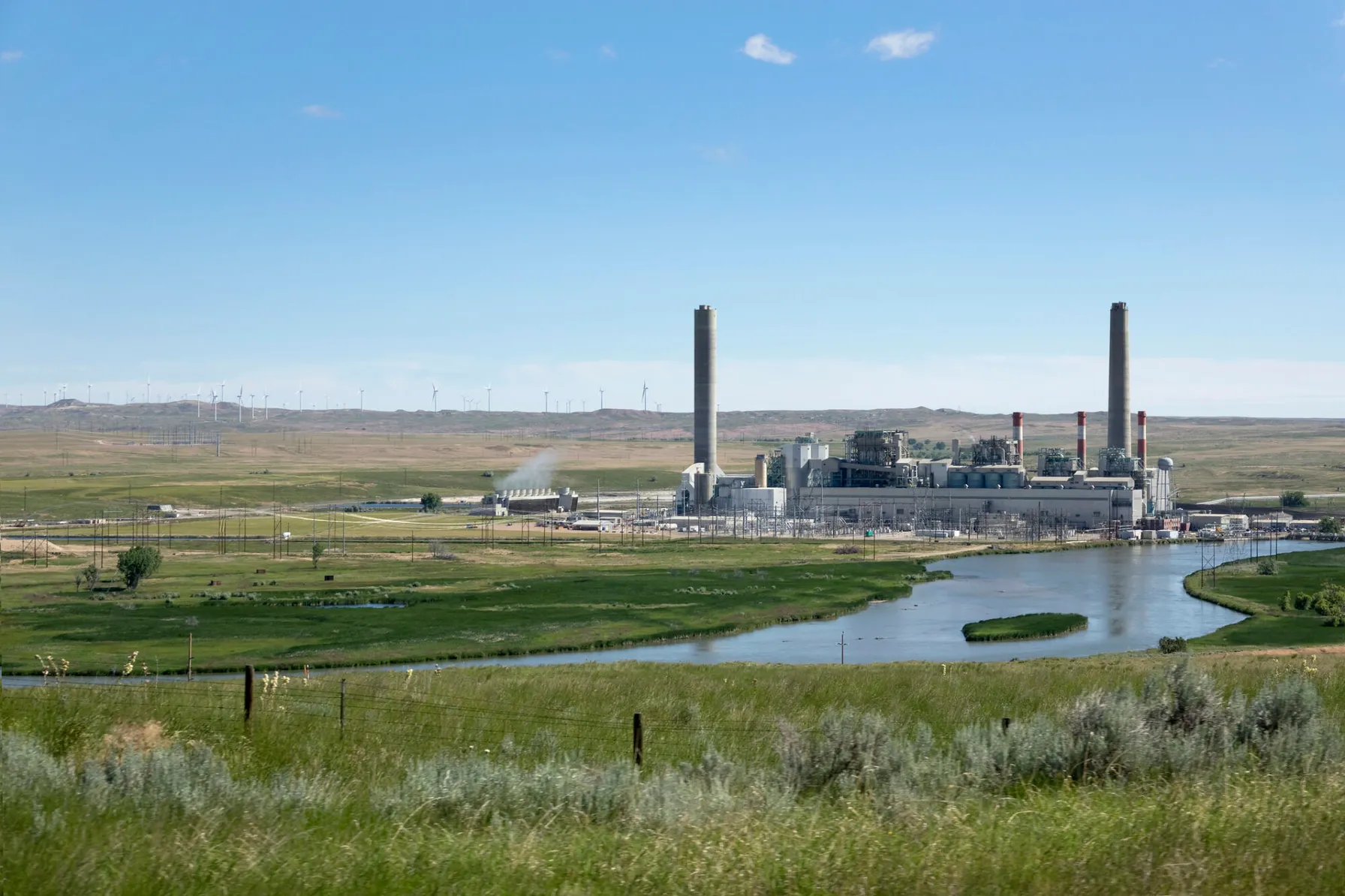
Preparing Your RMP Facility for a Future of Extreme Weather
novembre 29, 2022
Facilities dealing with hazardous materials must prepare for extreme weather events that pose a risk to their operations and the community.

Data Requirements to Improve Statistical Decision Making
octobre 25, 2022
One goal of statistics is to draw meaningful inferences but your dataset must be large enough to provide technically-defensible and robust statistics.

Proactive Enforcement is Key in the EPA FY2022-2026 Strategy
octobre 19, 2022
A core element of the EPA FY2022-2026 Strategic Plan focuses on environmental compliance.

Preparing for EPA Inspections in Environmental Justice Communities
octobre 4, 2022
The EPA Office of Enforcement and Compliance Assurance Have Expanded Goals to Strengthen Enforcement and Protections Within EJ Communities

A Green Future for Stormwater Management
septembre 26, 2022
Green Stormwater Management is an effective strategy for flood control and pollution mitigation.

New National Emerging Contaminants Research Initiative
septembre 12, 2022
The Executive Office of the President of the United States announced a National Emerging Contaminant Research Initiative

Using Economic Impact Assessments to Share the Story of a Project or Facility
août 24, 2022
Economic Impact Assessments can demonstrate the positive effects a project has on the local economy.

NERC Proposes Implementation Guidance for PRC-019-2
août 22, 2022
NERC has proposed implementation guidance for PRC-019-2, the standard that verifies coordination of generating unit facility or synchronous condenser voltage regulating controls, limit functions, equipment capabilities and protection system settings.

Optimizing EHS/ESG Information Management and Reporting Systems by Leveraging Innovative Digital Technology Solutions
août 10, 2022
A single, integrated enterprise wide EHS/ESG IMS can significantly improve performance and communicate progress towards organizational requirements and goals.

Regulatory Compliance Items to Consider as Part of Transactional Due Diligence
juillet 19, 2022
Performing a limited environmental regulatory review can identify potential deficiencies with the environmental management of an acquisition.

Revisions to FAC-001 and FAC-002 Submitted for FERC Approval
juillet 12, 2022
Reliability Standards FAC-001-4 and FAC-002-will resolve uncertainty regarding the meaning of “materially modify” under the currently effective standards.

What Is an ESG Strategy and How Businesses Can Create One
juillet 7, 2022
All businesses seek profits, but today’s investors and shareholders want to see businesses making efforts to make the world a better place as they generate those profits.

FERC Order No. 881-A Has Implications for NERC Compliance Programs
juin 23, 2022
Updated Order will have significant impact on NERC compliance programs related to both PRC standards and facilities ratings. Utilities should review the Order’s requirements and prepare for changes needed to remain compliant.

ESG Social Criteria
juin 22, 2022
ESG criteria involve many different factors. In this article, we look at the social aspect of ESG criteria. Contact TRC today to develop your ESG strategy!
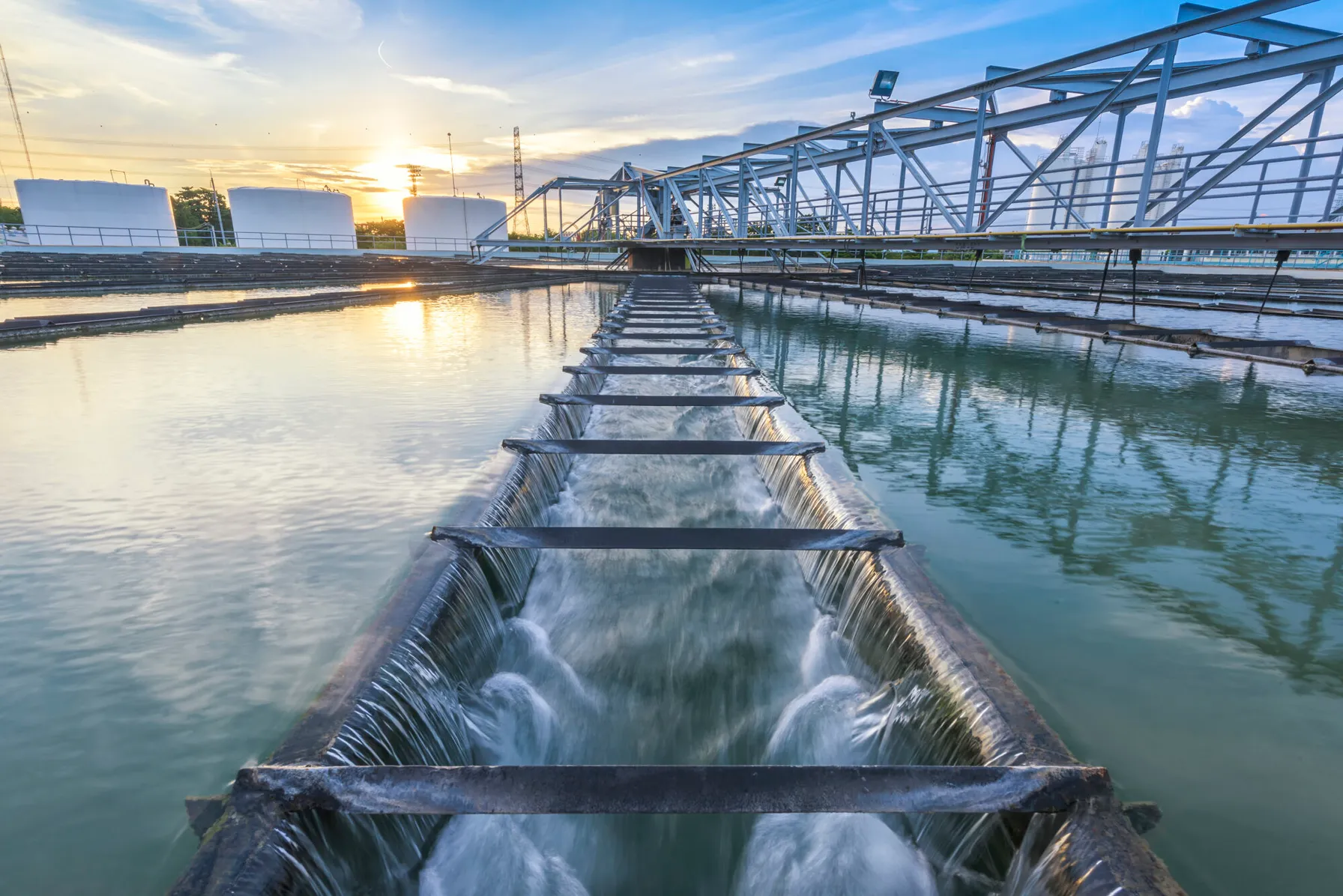
Integrating Sustainability, Digital Connectivity and Design Optimization in Wastewater Treatment Systems
juin 20, 2022
Some organizations rarely think about water and wastewater treatment, until there is a problem. American industry depends on the ability to treat wastewater discharges while complying with regulatory standards and addressing emerging contaminants. If wastewater treatment fails, our environment is negatively impacted, and companies are exposed to shutdowns, delays and fines.
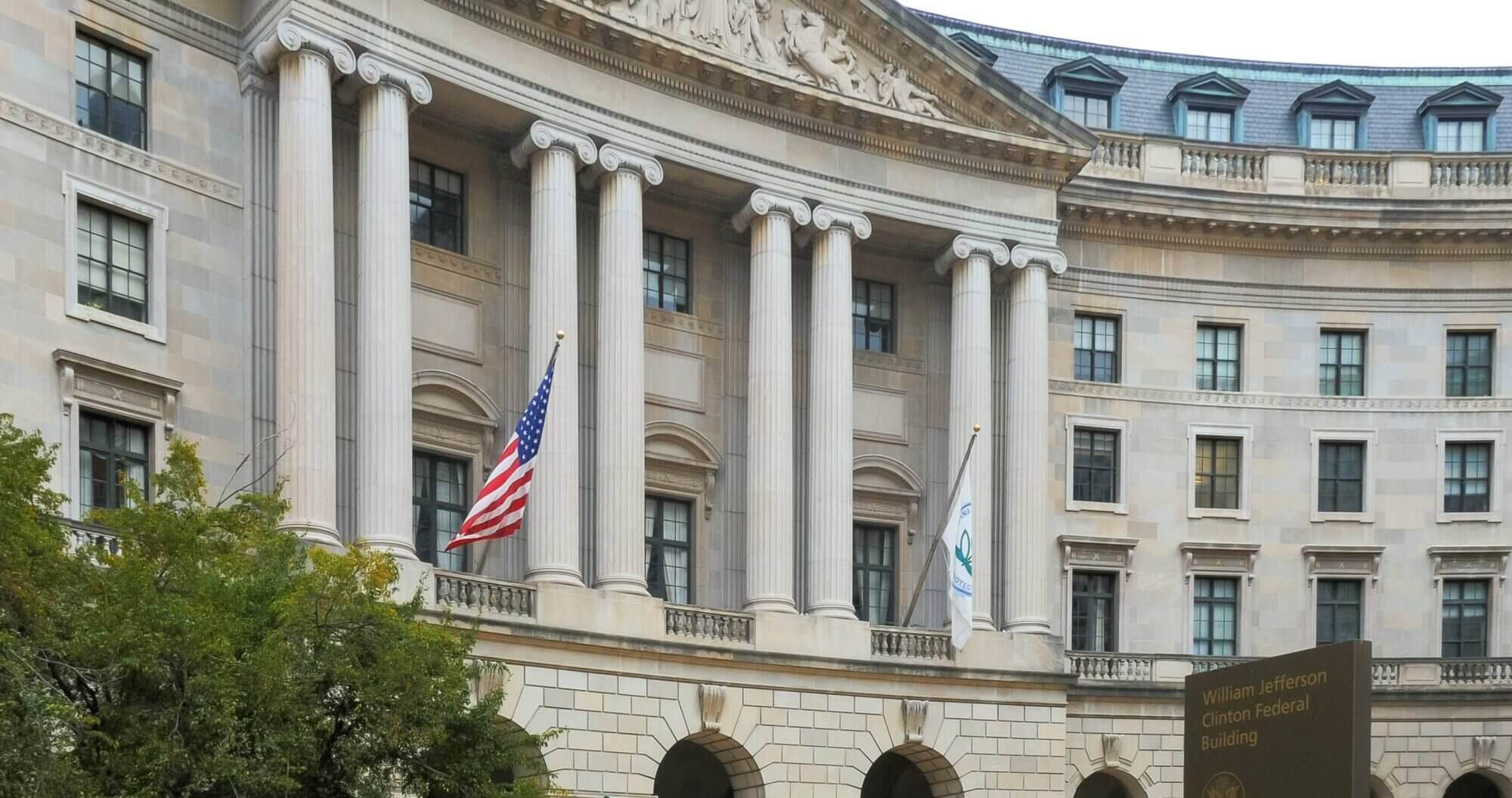
Climate Action and Environmental Justice are at the Forefront of EPA’s Strategic Plan
juin 14, 2022
The EPA issued its Fiscal Year 2022-2026 Strategic Plan. Although the strategic plans emphases often change with administrations, we can be reasonably certain that the Plan reflects priorities through 2024.

What Are ESG Ratings and How Are They Given?
juin 12, 2022
Your ESG rating can make or break your business’s attractiveness to investors. Learn more about ESG ratings and how they work with TRS Company!

Support an Integrated EHS/ESG Management System
juin 10, 2022
Décision réglementaire provisoire et règle proposée Le 29 mars 2023, l’Environmental Protection Agency (EPA) des États-Unis a proposé un Règlement national sur l’eau potable primaire (NPDWR) pour six SPFA : Valeurs proposées du Règlement national sur l’eau potable primaire (NPDWR) SPFA ComposéMCLG non exécutoire (ppt)MCL exécutoire (ppt)HBWC (ppt) SPFO Acide perfluorooctanesulfonique04N/A APFO Acide perfluorooctanoïque04N/A PFNA Acide perfluorononanoïque HI=1 HI=1 10 PFHxS Acide perfluorohexanesulfonique9 HFPO-DA (Génération X) Acide dimère d’hexafluoro-propylène10 PFBS Acide sulfonique de perfluorobutane2000 Remarques : HBWC = Concentration d’eau basée sur la santé IH = Indice de danger non cancéreux = ∑ (concentration/HBWC) LCM = Concentration maximale de contaminants MCLG = Objectif de niveau maximal de contaminants S.O. = Sans Objet ; HBWC utilisé dans le calcul HI L’EPA propose d’établir des objectifs de concentration maximale de contaminants (MCLGs) non exécutoires basés sur la santé et des niveaux maximaux de contaminants (LCM) exécutoires pour ces composés. La proposition comprend la réglementation de l’APFO et du SPFO en tant que produits chimiques individuels. Il est proposé que les quatre autres SPFA – PFNA, PFHxS, GenX et PFBS – soient réglementées à l’aide d’une approche d’indice de danger (IH). Le reste du présent billet sera axé sur l’approche HI telle que proposée. Cliquez ici pour un aperçu de la règle proposée. Les commentaires du public doivent être reçus le 30 mai 2023.

NERC’s Revised PRC-024-3 Standard for Inverter-Based Generation Effective in October 2022
mai 11, 2022
Changes to PRC-024-3 in support of inverter-based generation performance are going into effect in October of this year. Interconnection programs and documentation procedures may need to be updated in order to maintain compliance.
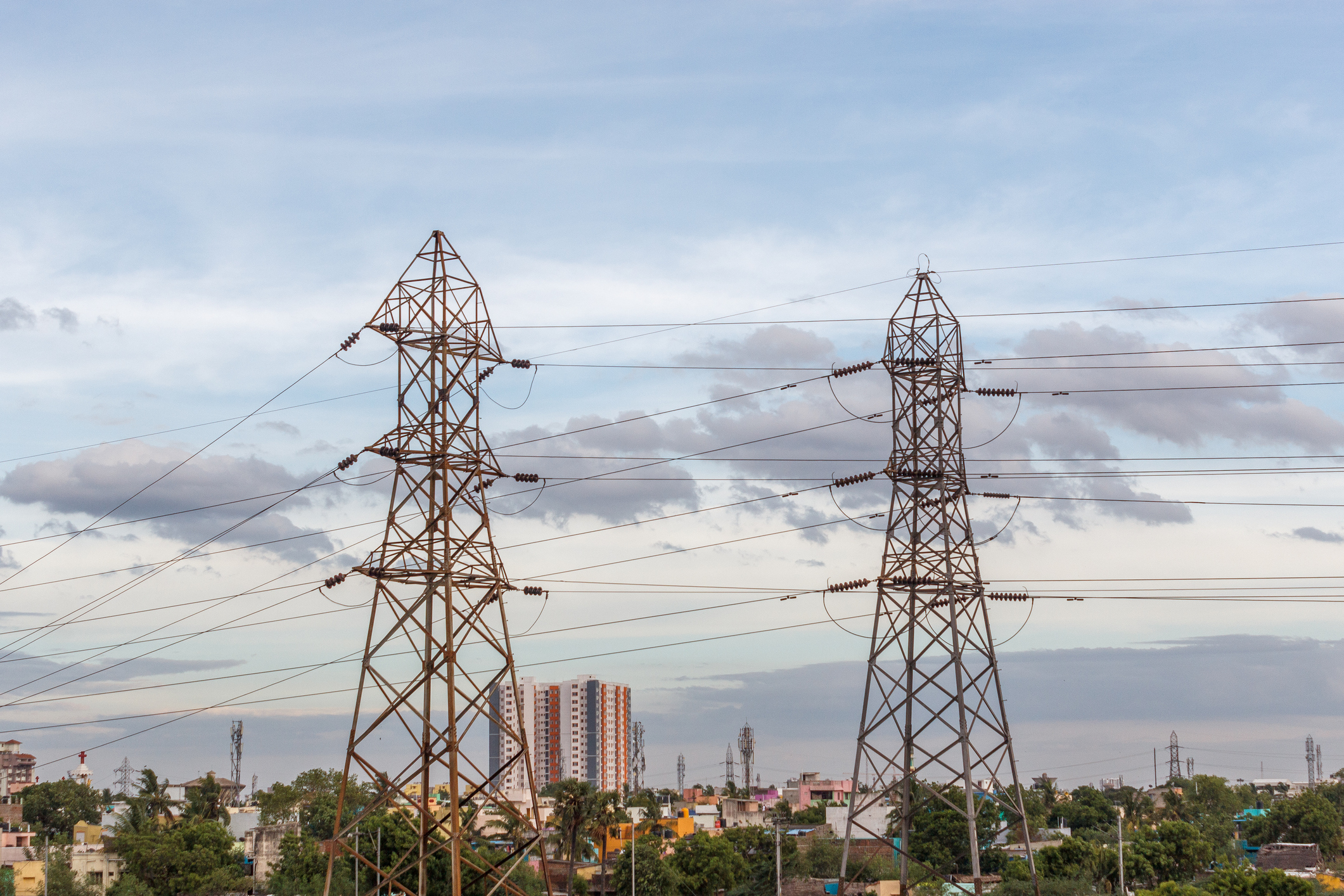
FERC Issues Notice of Inquiry Regarding Dynamic Line Ratings
avril 25, 2022
There are significant technical challenges involved in implementing Dynamic Line Ratings in the planning and operation of utility systems. Utilities should be prepared to modify their NERC compliance programs as necessary to address the potential introduction of DLR in their businesses.

How to Use an Integrated Approach To Manage EHS and ESG Risks
avril 20, 2022
Décision réglementaire provisoire et règle proposée Le 29 mars 2023, l’Environmental Protection Agency (EPA) des États-Unis a proposé un Règlement national sur l’eau potable primaire (NPDWR) pour six SPFA : Valeurs proposées du Règlement national sur l’eau potable primaire (NPDWR) SPFA ComposéMCLG non exécutoire (ppt)MCL exécutoire (ppt)HBWC (ppt) SPFO Acide perfluorooctanesulfonique04N/A APFO Acide perfluorooctanoïque04N/A PFNA Acide perfluorononanoïque HI=1 HI=1 10 PFHxS Acide perfluorohexanesulfonique9 HFPO-DA (Génération X) Acide dimère d’hexafluoro-propylène10 PFBS Acide sulfonique de perfluorobutane2000 Remarques : HBWC = Concentration d’eau basée sur la santé IH = Indice de danger non cancéreux = ∑ (concentration/HBWC) LCM = Concentration maximale de contaminants MCLG = Objectif de niveau maximal de contaminants S.O. = Sans Objet ; HBWC utilisé dans le calcul HI L’EPA propose d’établir des objectifs de concentration maximale de contaminants (MCLGs) non exécutoires basés sur la santé et des niveaux maximaux de contaminants (LCM) exécutoires pour ces composés. La proposition comprend la réglementation de l’APFO et du SPFO en tant que produits chimiques individuels. Il est proposé que les quatre autres SPFA – PFNA, PFHxS, GenX et PFBS – soient réglementées à l’aide d’une approche d’indice de danger (IH). Le reste du présent billet sera axé sur l’approche HI telle que proposée. Cliquez ici pour un aperçu de la règle proposée. Les commentaires du public doivent être reçus le 30 mai 2023.

Why Are ESG Frameworks Important?
avril 13, 2022
ESG standards significantly impact long-term growth, leading many companies to integrate ESG reporting into their corporate social responsibility (CSR) strategies. ESG frameworks are broad and diverse, and establishing a reporting system that covers your industry’s most relevant metrics can be challenging.

EPA Coal Ash Compliance Expectations Updated
mars 28, 2022
New EPA Communications highlight new Coal Combustion Residual compliance expectations, a shift from the current program.

New NERC Guidance Supports the Implementation of Grid Forming Inverters
mars 8, 2022
NERC has issued a new report highlighting the key attributes of various inverter controls to support proper implementation and to protect reliability.
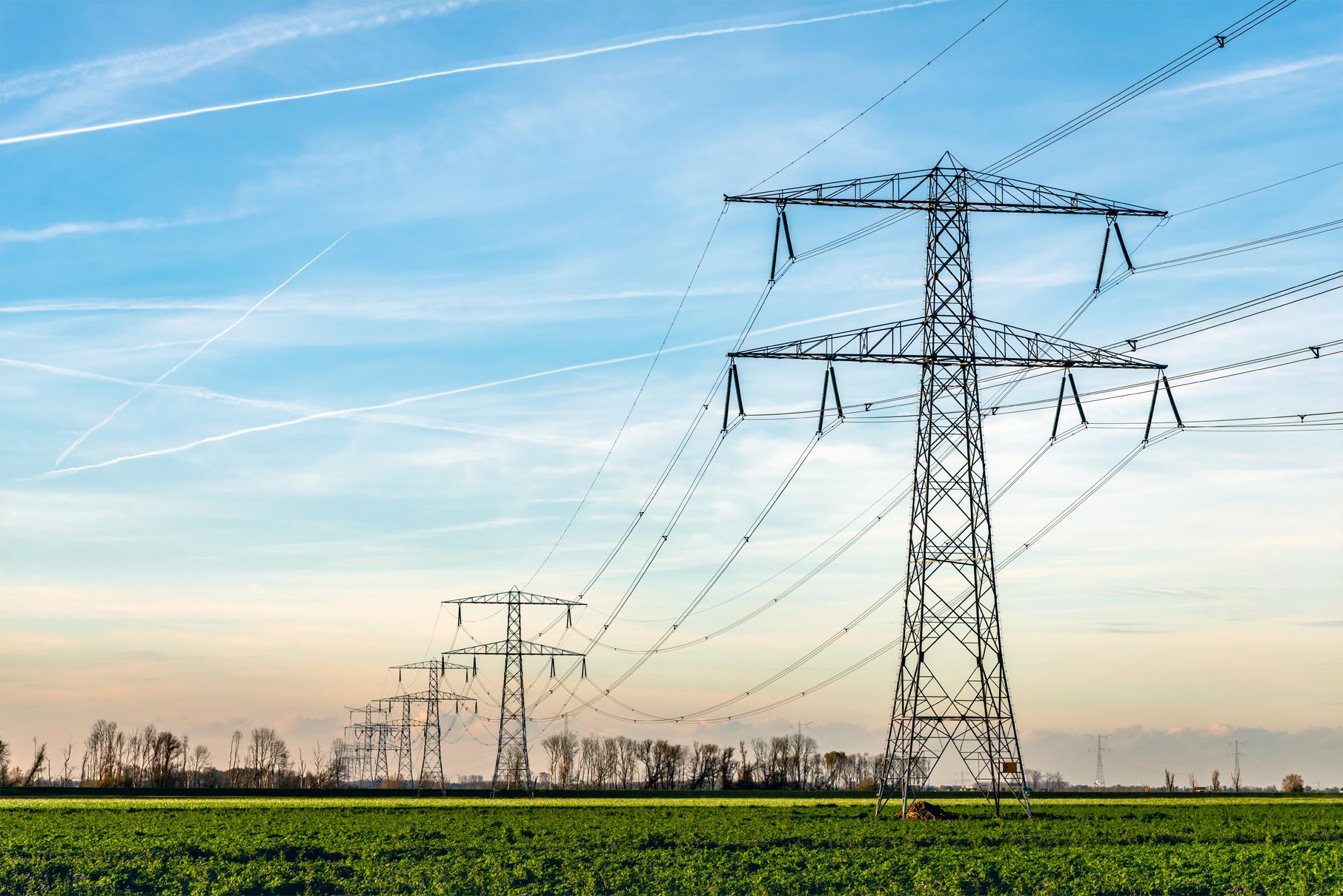
NERC Recommends Approaches for Underfrequency Load Shedding Programs
février 24, 2022
In a recently released reliability guideline, NERC recommends additional approaches for Underfrequency Load Shedding (UFLS) program design to help utilities effectively consider the effects of Distributed Energy Resources (DERs). The guidance was developed to address the accelerated transition of the power system to locally installed, decarbonized resources that depend on inverters. These new technologies introduce operational controls issues into the electric grid. UFLS data gathering and analysis methodologies may require modification to address reliability risks.
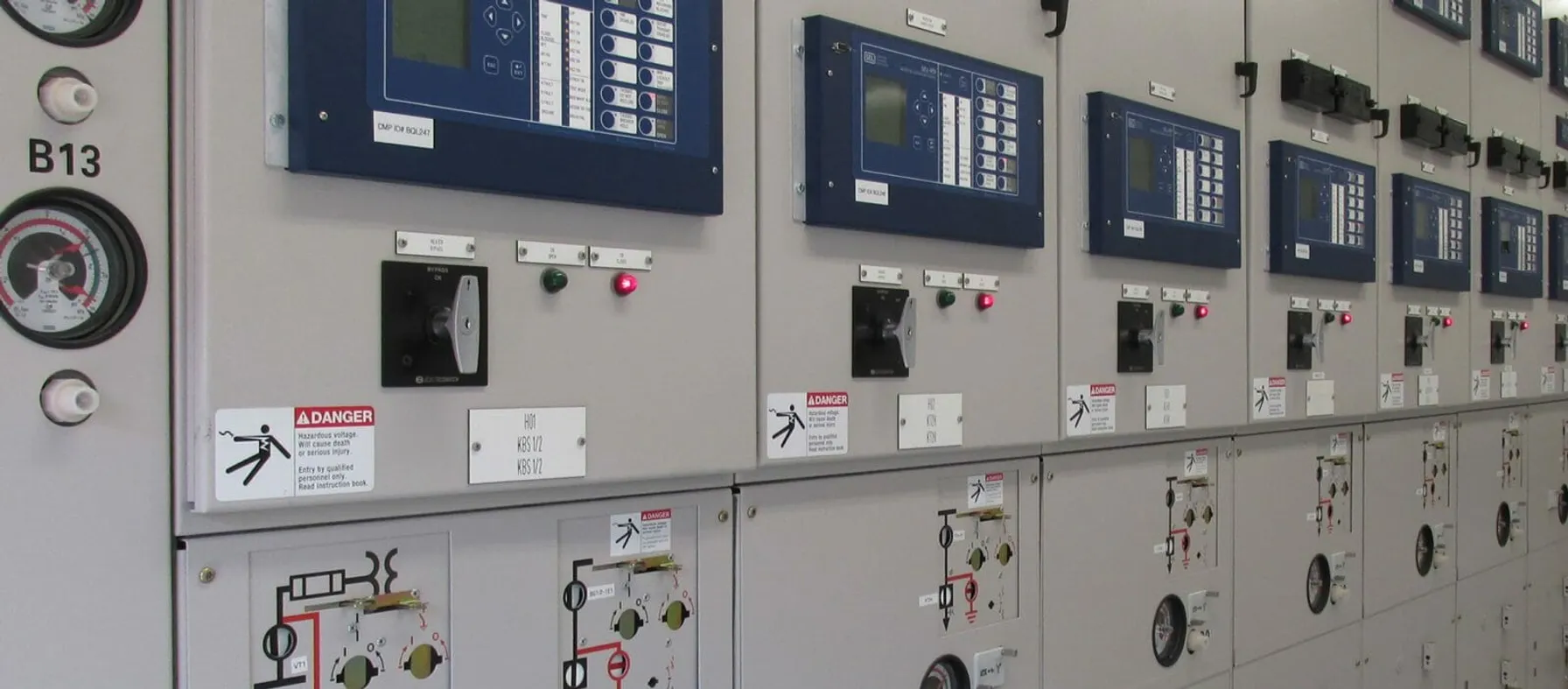
NERC and FERC Recommend Protection System Commissioning Improvements
janvier 18, 2022
Between 18 and 36 percent of reported utility misoperations were attributed to issues that could have been detected through a properly implemented PSC.

FERC & NERC Issue Joint Report on Freeze Reliability Failures
Décembre 15, 2021
The in-depth report outlines twenty-eight recommendations to address freeze reliability failures, including operating practices and recommendations for NERC standards modifications surrounding generator winterization and gas-electric coordination.
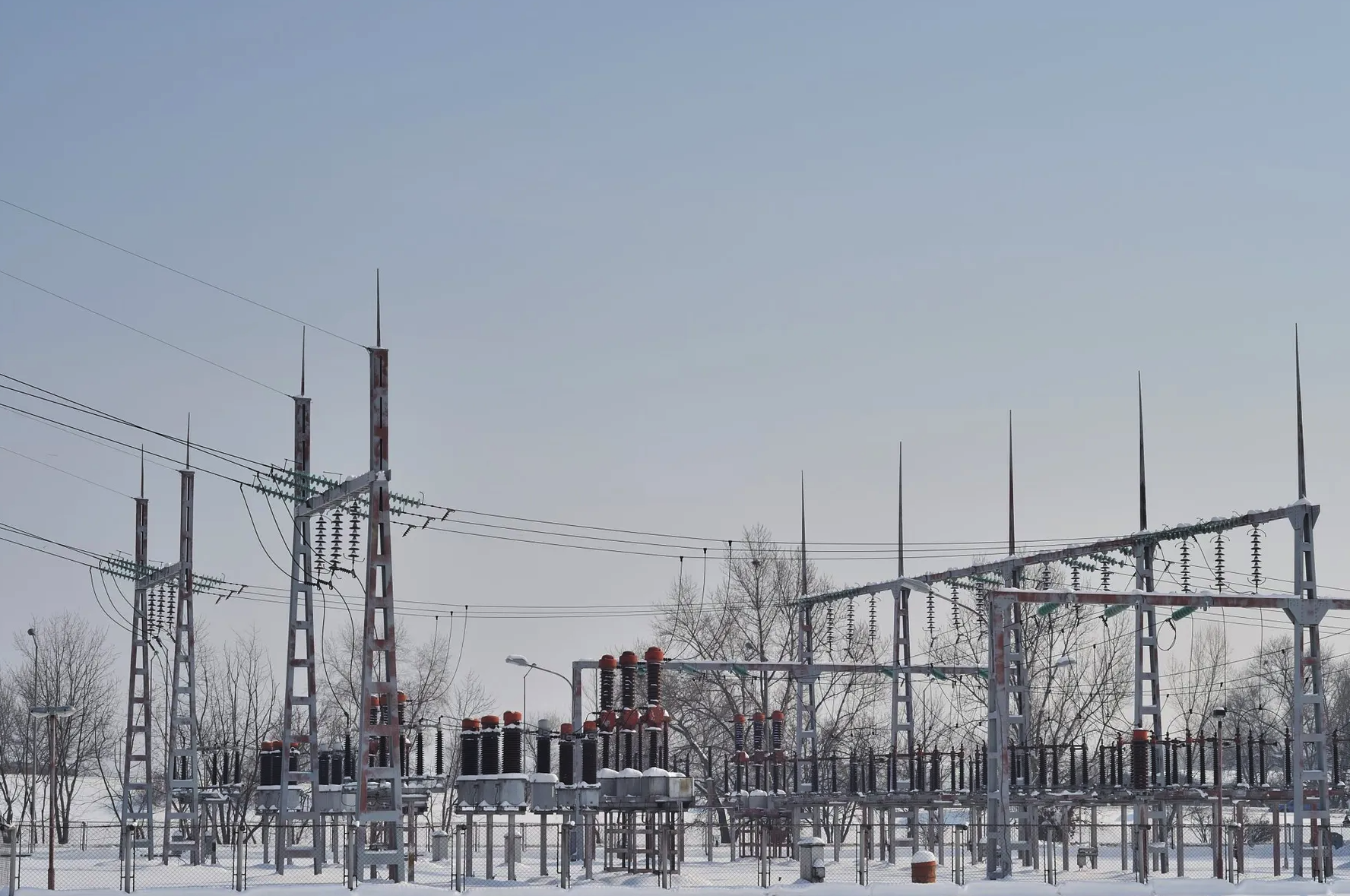
NERC Accelerates Additional Cold Weather Standards Changes
novembre 22, 2021
At its November 2021 meeting, NERC’s Board of Trustees took aggressive action to advance critical cold weather Reliability Standards. Most notably, the group approved the 2022-2024 Reliability Standards Development Plan, which prioritizes standards projects for the coming years including a resolution to include new cold weather operations, preparedness and coordination standards as high priority development projects.

OSHA’s National Emphasis Program on Heat-Related Illness and Injuries
novembre 3, 2021
On September 20, 2021 in an OSHA National News Release, OSHA published a memorandum establishing an enforcement initiative that is designed to prevent and protect employees from heat-related illnesses and death. This initiative, which develops a National Emphasis Program (NEP) on heat inspections, is an expansion of an already existing Regional Emphasis Program (REP) in OSHA’s Region VI, which covers Arkansas, Louisiana, New Mexico, Oklahoma and Texas.

New Potential Compliance Standards Identified at FERC Technical Conference on Reliability
octobre 18, 2021
With a focus on the reliability impact of extreme weather and the shortcomings of current system planning approaches, both NERC and FERC conference participants opened the door to potential forthcoming compliance standard enhancements or changes.

NJDEP Implements New Jersey Environmental Justice Law Through Administrative Order
octobre 5, 2021
On September 22, 2021, the New Jersey Department of Environmental Protection (NJDEP) Commissioner announced the issuance of Administrative Order (AO) No. 2021-25 to implement New Jersey’s Environmental Justice (EJ) Law. This order is effective immediately, and applicants seeking to site new major source facilities, renew major source permits or expand existing facilities with major source permits (e.g., Title V air permits) in overburdened communities are affected. There are more than 4.5 million people that live within 331 municipalities that are overburdened communities in the state of New Jersey.

OSHA Returns to In-Person Inspections As COVID-19 Restrictions Lift
août 4, 2021
The Occupational Safety and Health Administration (OSHA) is authorized by the Occupational Safety and Health Act of 1970 (OSH Act) to assure employers provide safe and healthful work conditions free of recognized hazards and by setting and enforcing standards and providing training, outreach, education and technical assistance. OSHA has recently announced the return to in-person inspections as COVID-19 restrictions begin to lift.

TRC and T.D. Williamson Partner to Provide Safe, Innovative and Cost-Saving Services to Pipeline Operators
juillet 18, 2021
TRC is teaming with T.D. Williamson to help oil and gas clients navigate the compliance issues surrounding PHMSA’s upcoming Gas Mega Rule.

NERC Proposes Revisions to CIP-008
mars 27, 2021
NERC’s CIP-008 standard aims to mitigate reliability risks resulting from a Cyber Security Incident by specifying incident response requirements. Newly proposed revisions would augment mandatory reporting to include incidents that compromise, or attempt to compromise, a utility’s Electronic Security Perimeter (ESP) or associated Electronic Access Control or Monitoring Systems (EACMS).

EPA continues to aggressively address PFAS wastewater with two new strategies
janvier 4, 2021
EPA takes steps toward PFAS wastewater and storm water permitting, and analytical methods for testing.

Ecological Risk of PFAS from AFFF-Impacted Sites
juin 30, 2020
The facts on evaluating exposure to wildlife

INGAA Foundation Elects TRC’s Lauren O’Donnell as Chair
février 5, 2020
The board of directors of the INGAA Foundation elected Lauren O’Donnell as its chair for a one-year term.

TRC and Environmental Partners, Inc. (EPI) have entered into definitive agreement for the sale of EPI’s business
novembre 25, 2019
TRC and Environmental Partners, Inc. (EPI) have entered into definitive agreement for the sale of EPI’s business
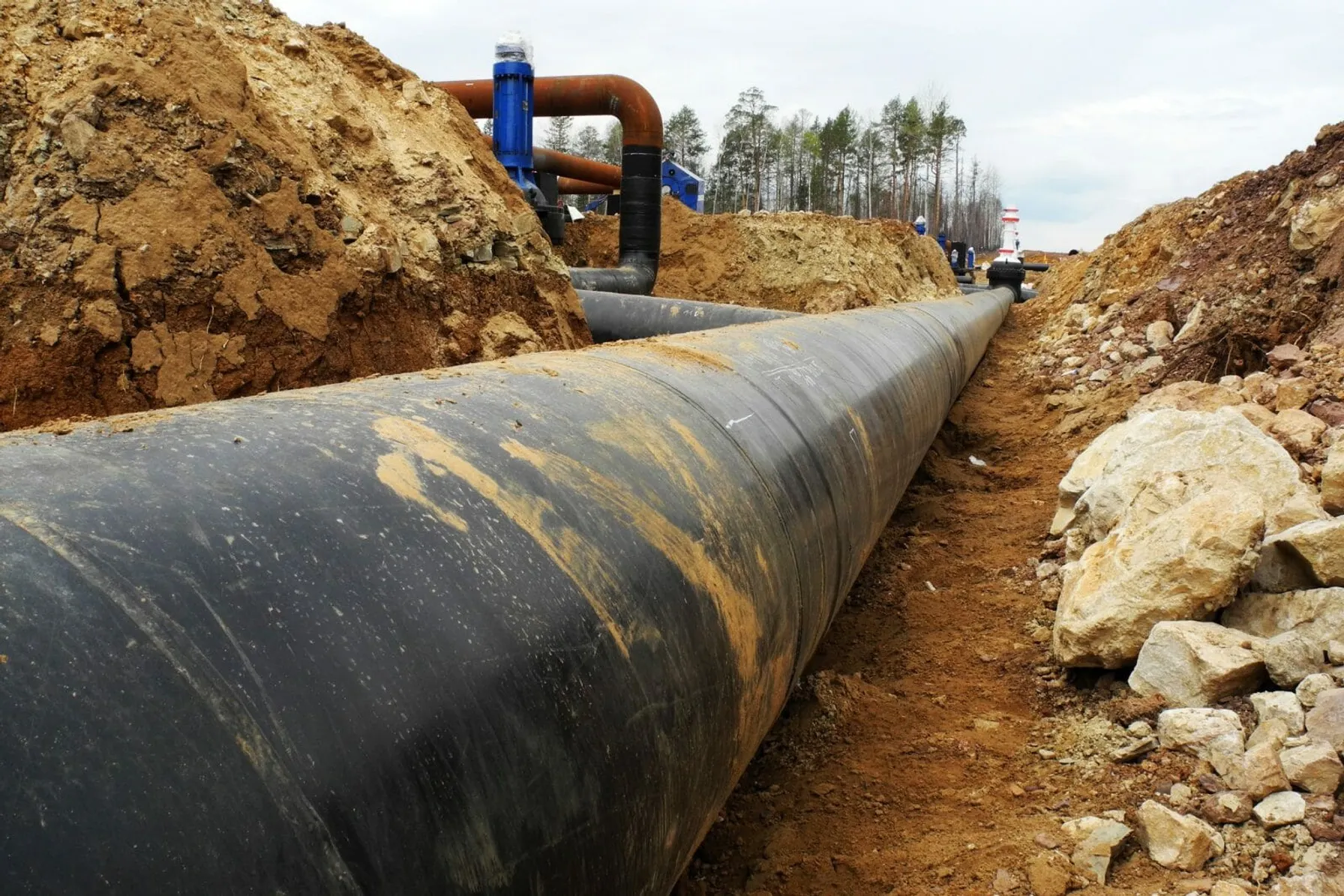
Targeting Perfection in the Construction and Operation of Pipelines
octobre 18, 2019
To have an impact on the delivery or operation of a pipeline, it’s vital to eliminate the intra- and inter-company barriers, including those in the areas of communications, culture and technology.

How Much Does Operator Qualification Matter for In-Line Inspection of Pipelines?
octobre 9, 2019
Successful pipeline inspectors and analysts need more than just the right certifications. Even more important is proper experience and on-the-job training.

PHMSA Publishes New Rules to Increase the Safety of Hazardous Liquid Pipelines and Gas Transmission Pipelines
septembre 25, 2019
The Pipeline and Hazardous Materials Safety Administration this week published important new rules aimed at improving pipeline safety.

NERC Calls for New Approach to Reliability Planning Due to Gas Supply Disruption Risks
Décembre 14, 2017
A recently published NERC report concludes that as reliance on natural gas to meet electric generation requirements increases, additional planning and operational measures must be considered to mitigate power system reliability risks.
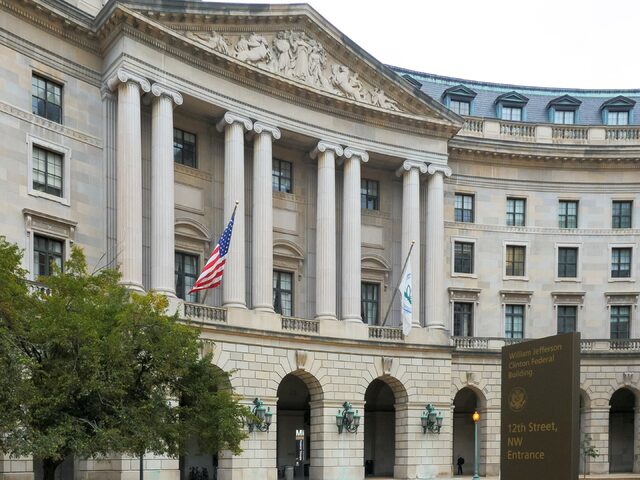
EPA Unveils Largest Deregulatory Initiative in U.S. History
avril 1, 2025
Environmental Protection Agency (EPA) Administrator Lee Zeldin has announced the Agency’s plan to undertake 31 deregulatory actions with the stated goal of driving down the cost of living for Americans and revitalizing the American energy and auto industry.

PM2.5 Révision annuelle du SNQA
mai 7, 2024
L’EPA des États-Unis a publié une règle finale fondée sur son réexamen de sa décision de 2020 de conserver les normes nationales de qualité de l’air ambiant (NQAA) primaires et secondaires pour les matières particulaires (MP) sans révision.
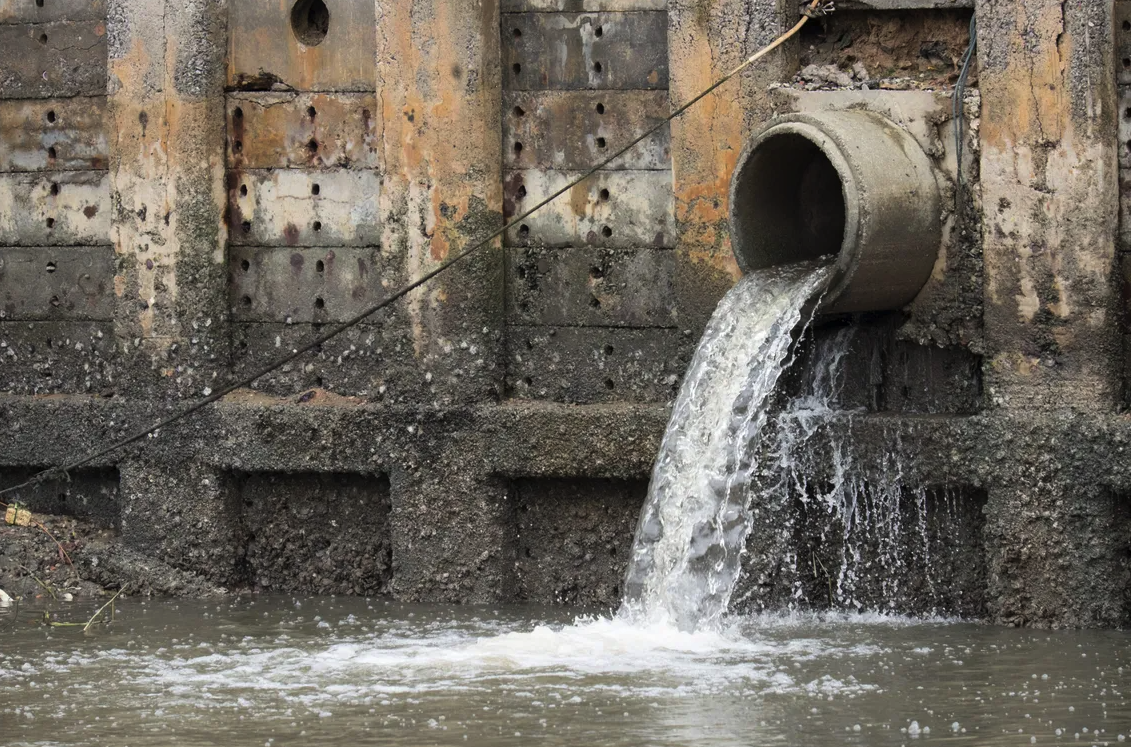
Le NJDEP publie des mises à jour et des modifications sur la gestion des eaux pluviales
avril 12, 2024
Le New Jersey Department of Environmental Protection (NJDEP) a récemment publié deux nouvelles exigences relatives à son programme new Jersey Pollutant Discharge Elimination System (NJPDES) qui affectent les exigences de cartographie des municipalités et le dimensionnement des nouvelles pratiques de gestion des eaux pluviales.

Les modifications apportées au Règlement sur le programme de gestion des risques (PGR) de l’EPA sont ici
avril 3, 2024
Les modifications apportées aux règlements du Programme de gestion des risques (PGR) ont été signées dans une règle finale le 27 février 2024 par l’administrateur de l’EPA, Michael S. Regan.

Are You Prepared for 2024 TSCA Chemical Data Reporting?
octobre 9, 2023
Chemical Data Reporting (CDR), like the Olympics, occurs every four years, and then most facilities move on to more pressing environmental, health and safety (EHS) matters.

Intro to NERC Regulatory Guidance on Inverter-Based Resources
août 29, 2023
As renewable energy proliferates across the US power system, the North American Electric Reliability Corporation (NERC) continues to actively address reliability risks resulting from the implementation of inverter-based resources (solar and wind generation technology) connected at both transmission and Distributed Energy Resources (DER) levels.

Utilisation proposée d’un indice de danger pour le Règlement national sur l’eau potable primaire (NPDWR) sur les SPFA
avril 4, 2023
La LCM et la MCLG proposées pour les quatre SPFA, LE PFNA, le PFHxS, le GenX et le PFBS considèrent leur toxicité comme additif. L’EPA a proposé un IH de 1,0 en tant que MCL et MCLG pour les quatre SPFA combinés.

Setting the Stage for Effective Environmental Compliance Recordkeeping
mars 21, 2023
Recordkeeping is an integral component of demonstrating compliance with environmental regulations.

Equipment Decontamination and Replacement of Legacy Aqueous Film Forming Foams
Décembre 21, 2022
Legacy AFFF used for firefighting are a significant source of PFAS in the environment. With current and expected regulation, many entities are looking for replacements.

Preparing Your RMP Facility for a Future of Extreme Weather
novembre 29, 2022
Facilities dealing with hazardous materials must prepare for extreme weather events that pose a risk to their operations and the community.
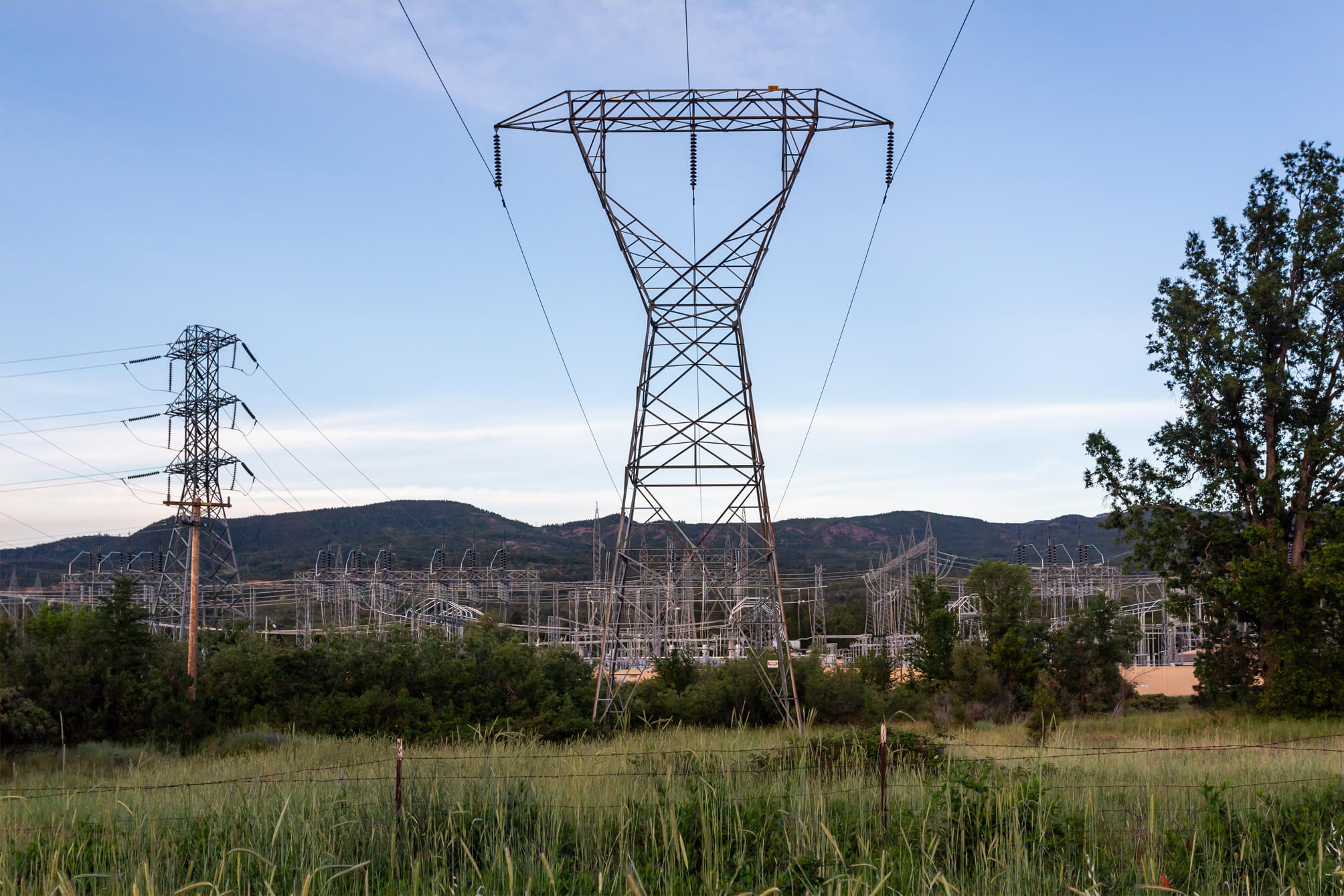
NERC Releases Inverter-Based Resource Strategy Plan
octobre 25, 2022
The North American Electric Reliability Corporation (NERC) recently released an Inverter-Based Resource (IBR) Strategy, which details the steps needed to successfully integrate IBR facilities into the planning and operation of the power system. The strategy was put in place due to the rapid interconnection of IBR systems, which are extensively used for solar and wind generating facilities, including new battery-based energy storage systems and are one of the most significant drivers of power grid transformation. Because of control system inconsistencies, IBR facilities pose well-documented risks to power system reliability when this strategy’s practices are not adhered to. NERC’s plan calls attention to the need for thoughtful integration of IBRs and identifies current and future work required to mitigate reliability risks resulting from the deployment of this technology.

NERC Releases 2022 State of Reliability Report
septembre 16, 2022
The North American Electric Reliability Corporation (NERC) recently released its 2022 State of Reliability report, which examines power system performance in calendar year 2021 and evaluates reliability performance trends. The 2022 report identified six key findings regarding power system performance that are summarized as follows:

NERC Proposes Implementation Guidance for PRC-019-2
août 22, 2022
NERC has proposed implementation guidance for PRC-019-2, the standard that verifies coordination of generating unit facility or synchronous condenser voltage regulating controls, limit functions, equipment capabilities and protection system settings.

Regulatory Compliance Items to Consider as Part of Transactional Due Diligence
juillet 19, 2022
Performing a limited environmental regulatory review can identify potential deficiencies with the environmental management of an acquisition.

Revisions to FAC-001 and FAC-002 Submitted for FERC Approval
juillet 12, 2022
Reliability Standards FAC-001-4 and FAC-002-will resolve uncertainty regarding the meaning of “materially modify” under the currently effective standards.

FERC Order No. 881-A Has Implications for NERC Compliance Programs
juin 23, 2022
Updated Order will have significant impact on NERC compliance programs related to both PRC standards and facilities ratings. Utilities should review the Order’s requirements and prepare for changes needed to remain compliant.

Climate Action and Environmental Justice are at the Forefront of EPA’s Strategic Plan
juin 14, 2022
The EPA issued its Fiscal Year 2022-2026 Strategic Plan. Although the strategic plans emphases often change with administrations, we can be reasonably certain that the Plan reflects priorities through 2024.

NERC’s Revised PRC-024-3 Standard for Inverter-Based Generation Effective in October 2022
mai 11, 2022
Changes to PRC-024-3 in support of inverter-based generation performance are going into effect in October of this year. Interconnection programs and documentation procedures may need to be updated in order to maintain compliance.

FERC Issues Notice of Inquiry Regarding Dynamic Line Ratings
avril 25, 2022
There are significant technical challenges involved in implementing Dynamic Line Ratings in the planning and operation of utility systems. Utilities should be prepared to modify their NERC compliance programs as necessary to address the potential introduction of DLR in their businesses.

New NERC Guidance Supports the Implementation of Grid Forming Inverters
mars 8, 2022
NERC has issued a new report highlighting the key attributes of various inverter controls to support proper implementation and to protect reliability.

NERC Recommends Approaches for Underfrequency Load Shedding Programs
février 24, 2022
In a recently released reliability guideline, NERC recommends additional approaches for Underfrequency Load Shedding (UFLS) program design to help utilities effectively consider the effects of Distributed Energy Resources (DERs). The guidance was developed to address the accelerated transition of the power system to locally installed, decarbonized resources that depend on inverters. These new technologies introduce operational controls issues into the electric grid. UFLS data gathering and analysis methodologies may require modification to address reliability risks.

NERC and FERC Recommend Protection System Commissioning Improvements
janvier 18, 2022
Between 18 and 36 percent of reported utility misoperations were attributed to issues that could have been detected through a properly implemented PSC.

FERC & NERC Issue Joint Report on Freeze Reliability Failures
Décembre 15, 2021
The in-depth report outlines twenty-eight recommendations to address freeze reliability failures, including operating practices and recommendations for NERC standards modifications surrounding generator winterization and gas-electric coordination.

NERC Accelerates Additional Cold Weather Standards Changes
novembre 22, 2021
At its November 2021 meeting, NERC’s Board of Trustees took aggressive action to advance critical cold weather Reliability Standards. Most notably, the group approved the 2022-2024 Reliability Standards Development Plan, which prioritizes standards projects for the coming years including a resolution to include new cold weather operations, preparedness and coordination standards as high priority development projects.

PRC-002-2 Disturbance Monitoring and Reporting Standard: Initial Mandatory Implementation Plan Dates Approach
novembre 18, 2021
The Federal Energy Regulatory Commission approved PRC-002-2 in September, 2015. The initial due date for system studies necessary to identify locations for the collection of disturbance related data under Requirement R1 is January 1, 2017.

OSHA’s National Emphasis Program on Heat-Related Illness and Injuries
novembre 3, 2021
On September 20, 2021 in an OSHA National News Release, OSHA published a memorandum establishing an enforcement initiative that is designed to prevent and protect employees from heat-related illnesses and death. This initiative, which develops a National Emphasis Program (NEP) on heat inspections, is an expansion of an already existing Regional Emphasis Program (REP) in OSHA’s Region VI, which covers Arkansas, Louisiana, New Mexico, Oklahoma and Texas.

New Potential Compliance Standards Identified at FERC Technical Conference on Reliability
octobre 18, 2021
With a focus on the reliability impact of extreme weather and the shortcomings of current system planning approaches, both NERC and FERC conference participants opened the door to potential forthcoming compliance standard enhancements or changes.

NJDEP Implements New Jersey Environmental Justice Law Through Administrative Order
octobre 5, 2021
On September 22, 2021, the New Jersey Department of Environmental Protection (NJDEP) Commissioner announced the issuance of Administrative Order (AO) No. 2021-25 to implement New Jersey’s Environmental Justice (EJ) Law. This order is effective immediately, and applicants seeking to site new major source facilities, renew major source permits or expand existing facilities with major source permits (e.g., Title V air permits) in overburdened communities are affected. There are more than 4.5 million people that live within 331 municipalities that are overburdened communities in the state of New Jersey.

OSHA Returns to In-Person Inspections As COVID-19 Restrictions Lift
août 4, 2021
The Occupational Safety and Health Administration (OSHA) is authorized by the Occupational Safety and Health Act of 1970 (OSH Act) to assure employers provide safe and healthful work conditions free of recognized hazards and by setting and enforcing standards and providing training, outreach, education and technical assistance. OSHA has recently announced the return to in-person inspections as COVID-19 restrictions begin to lift.

TRC and T.D. Williamson Partner to Provide Safe, Innovative and Cost-Saving Services to Pipeline Operators
juillet 18, 2021
TRC is teaming with T.D. Williamson to help oil and gas clients navigate the compliance issues surrounding PHMSA’s upcoming Gas Mega Rule.

NERC Proposes Revisions to CIP-008
mars 27, 2021
NERC’s CIP-008 standard aims to mitigate reliability risks resulting from a Cyber Security Incident by specifying incident response requirements. Newly proposed revisions would augment mandatory reporting to include incidents that compromise, or attempt to compromise, a utility’s Electronic Security Perimeter (ESP) or associated Electronic Access Control or Monitoring Systems (EACMS).

NERC Releases 2021 Compliance Monitoring and Enforcement Findings
février 8, 2021
NERC’s 2021 Compliance Monitoring and Enforcement Program reframes the previous year’s risks and their associated areas of focus. Utilities should review their compliance programs and internal controls to determine if enhancement or changes are need to maintain compliance.

2020 TSCA Chemical Data Reporting (CDR)
Décembre 7, 2020
Earlier this year, EPA revised the CDR rule to reflect the 2016 amendments to TSCA, including changes for foreign-owned businesses and the reporting responsibilities of suppliers and contractors, as well as an exemption for small businesses.

Integrity Dig Integrated Services
août 4, 2020
Our Integrity Engineers, Surveyors, Right-of-Way Experts and Environmental Scientists are well-versed in all phases of integrity dig programs from preparing the pipeline for a tool run, interpreting results, verifying proper repair procedures and obtaining federal and state environmental approvals. Our team includes former pipeline operators, survey experts, PHMSA and environmental regulators and trainers. We developed the current ILI training curriculum for PHMSA’s training program.

INGAA Foundation Elects TRC’s Lauren O’Donnell as Chair
février 5, 2020
The board of directors of the INGAA Foundation elected Lauren O’Donnell as its chair for a one-year term.

Targeting Perfection in the Construction and Operation of Pipelines
octobre 18, 2019
To have an impact on the delivery or operation of a pipeline, it’s vital to eliminate the intra- and inter-company barriers, including those in the areas of communications, culture and technology.

How Much Does Operator Qualification Matter for In-Line Inspection of Pipelines?
octobre 9, 2019
Successful pipeline inspectors and analysts need more than just the right certifications. Even more important is proper experience and on-the-job training.

PHMSA Publishes New Rules to Increase the Safety of Hazardous Liquid Pipelines and Gas Transmission Pipelines
septembre 25, 2019
The Pipeline and Hazardous Materials Safety Administration this week published important new rules aimed at improving pipeline safety.

NERC Calls for New Approach to Reliability Planning Due to Gas Supply Disruption Risks
Décembre 14, 2017
A recently published NERC report concludes that as reliance on natural gas to meet electric generation requirements increases, additional planning and operational measures must be considered to mitigate power system reliability risks.

What Hydrogen Production Technologies Qualify for the 45V Tax Credit?
février 26, 2025
The 45V Tax Credit, formally known as the “Credit for Production of Clean Hydrogen and Energy Credit,” became effective on January 10, 2025 when it was published in the Federal Register. The 45V Tax Credit is one of the 21 tax credits that were created or amended by the Inflation Reduction Act (IRA). Finalization of this tax credit is important news to hydrogen project developers and financiers.

Prendre le crédit
mars 15, 2024
Une introduction à l’Inflation Reduction Act (IRA) – le plus grand investissement climatique de l’histoire du gouvernement fédéral américain – examinant ce que les gestionnaires d’EH &S doivent savoir sur cette législation de grande portée.
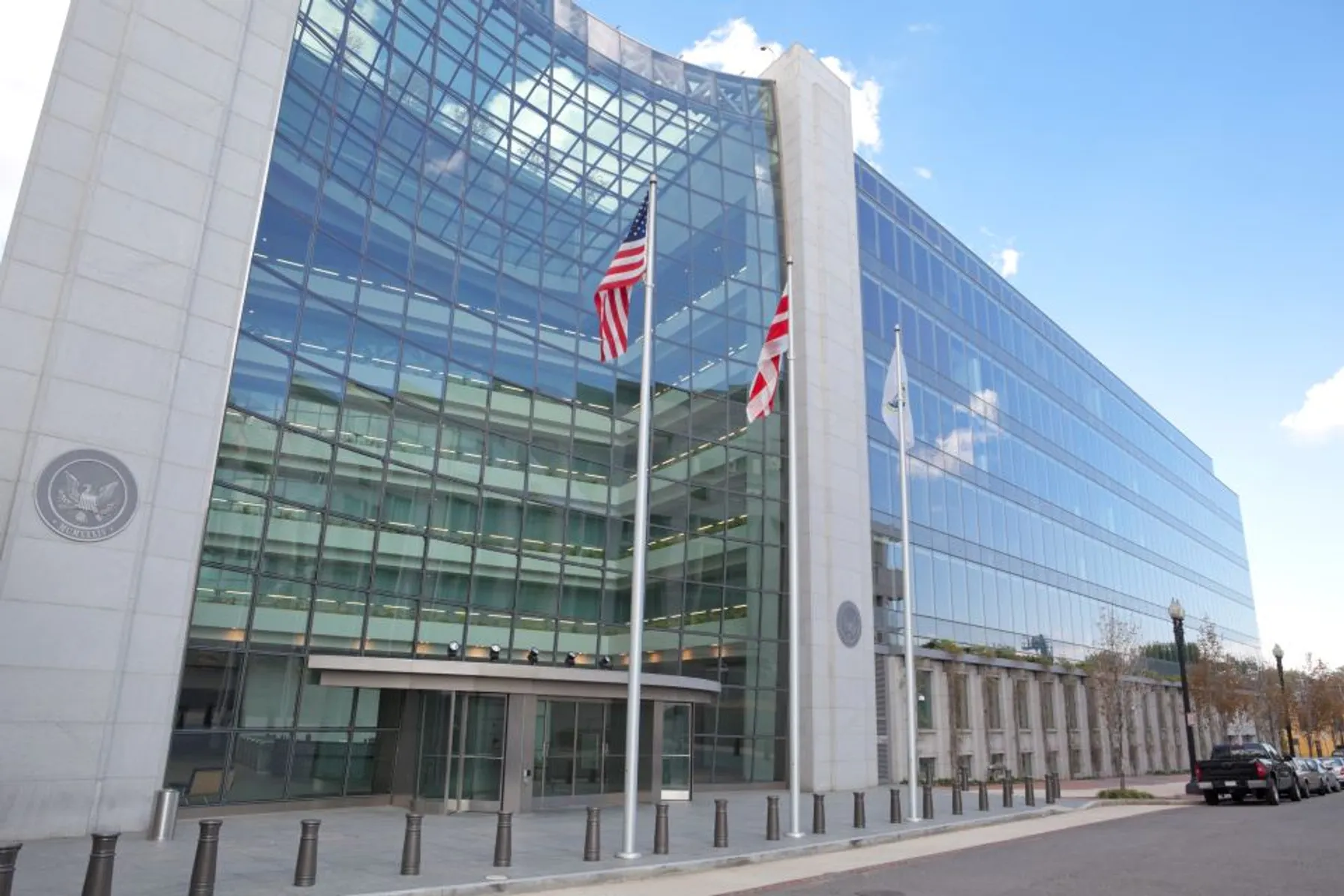
Règles de la SEC en faveur des divulgations liées au climat
mars 8, 2024
Dans une décision climatique tant attendue, la Securities and Exchange Commission (SEC) a statué 3-2 en faveur des divulgations liées au climat le 6 mars 2024.

L’EPA propose des règles pour la redevance sur les émissions de déchets imposée par l’IRA pour le méthane
février 6, 2024
L’EPA a proposé des règles pour mettre en œuvre le programme de redevance sur les émissions de déchets (WEC) pour les installations qui dépassent un seuil d’émissions de déchets

Ce que vous devez savoir sur la directive européenne sur les rapports de durabilité des entreprises (CSRD)
janvier 19, 2024
Le 1er janvier 2024 marque le début du premier délai de déclaration pour les entreprises dans le cadre de la directive de l’Union européenne sur les rapports sur la durabilité des entreprises (CSRD).

Le voyage vers net zéro commence par comprendre la destination
Décembre 7, 2023
Nous pouvons assurer l’intégrité de la mise en œuvre du zéro émission nette en comprenant le cadre évolutif de la définition de zéro émission nette.
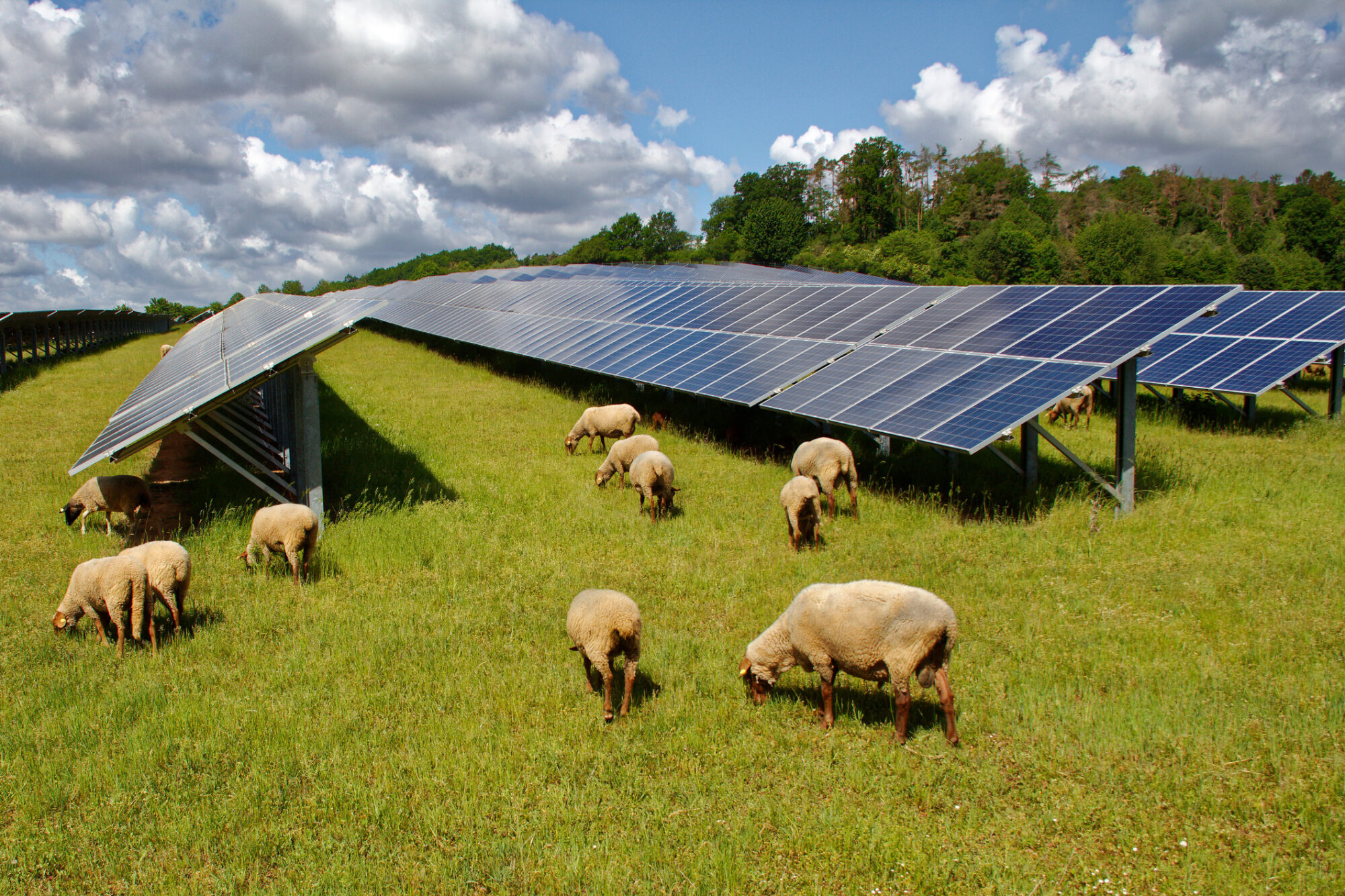
Agrivoltaics: A Sustainable Way to Harvest Sunshine
octobre 10, 2023
Learn how incorporating agricultural practices into your solar development improves project success.

Optimizing Offsets
septembre 7, 2023
Ensure Carbon Offsets Support Your Organization’s Climate Strategy

New Jersey Implements Landmark Environmental Justice Regulations
août 2, 2023
A new landmark Environmental Justice (EJ) law is now effective in New Jersey following a lengthy rulemaking process surrounding the New Jersey Department of Environmental Protection’s (NJDEP) Administration Order (AO) No. 2021-25. It is the first rule of its kind and the strongest EJ regulation in the nation.

EPA Proposes Regulation of Green House Gas Emissions
juillet 10, 2023
This article highlights the EPA’s proposed rules to regulate greenhouse gas emissions from power plants and the potential impact on new and existing fossil fuel-fired facilities.

California Advances Plastic Packaging Law
juillet 7, 2023
As rulemaking deadlines and compliance timeframes approach, how will your organization be impacted?

Organizing for Project Success
juin 22, 2023
Many organizations are establishing Project Management Organizations (PMOs) to improve project management within their organizations. While there can be many reasons for establishing a PMO, most are established to improve project management with respect to schedule, cost, quality and risk. This article provides an overview of factors to consider when deciding on which type of PMO is most suitable for your organization and how best to implement a successful and high-performing PMO.

Community Benefits Plans – A Winning Formula for Federal Funding
mai 12, 2023
The CBP acts as the project’s roadmap for ensuring communities workers, and other stakeholders have opportunities for meaningful engagement.

New Executive Order 14096 Broadens Environmental Justice Initiatives
mai 9, 2023
Executive Order 14096, Revitalizing Our Nation’s Commitment to Environmental Justice for All, seeks to deepen the Biden administration’s “whole-of-government” approach to environmental justice (EJ) by fully integrating the consideration of unserved and overburdened communities and populations into all aspects of federal agency planning and delivery of services.

Agrivoltaics
février 8, 2023
Agrivoltaics is the simultaneous use of land for both solar photovoltaic power generation and agriculture.

VaporSafe™ Continuous Air Monitoring Technology
janvier 9, 2023
VaporSafe™ continuous air monitoring technology can be used as a sustainable solution to identify a vapor intrusion pathway.
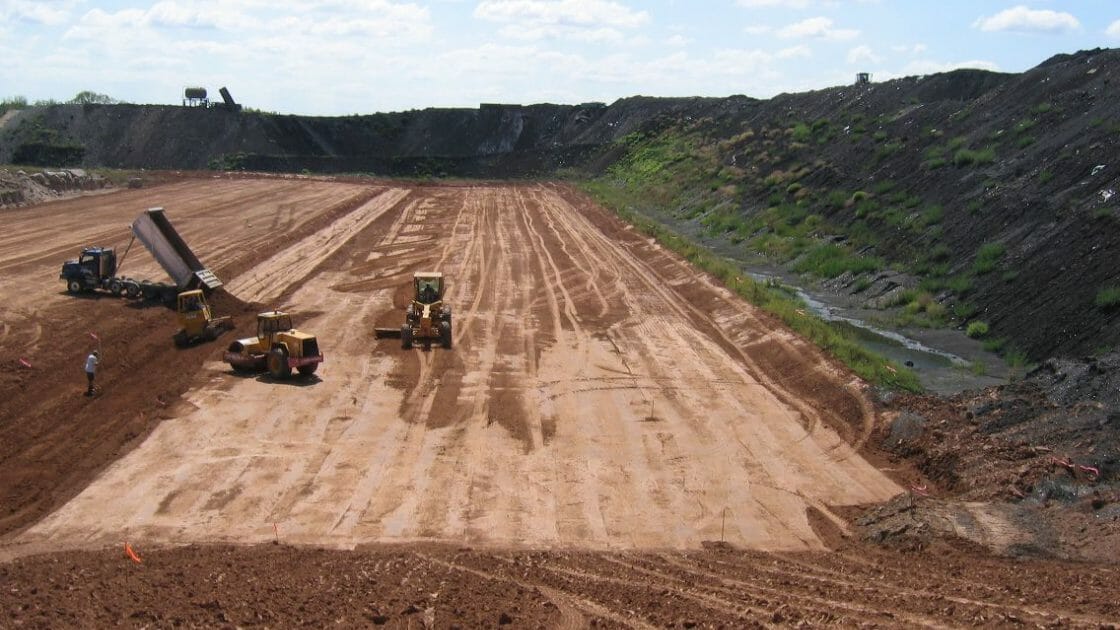
Green and Sustainable Remediation
janvier 9, 2023
Green and sustainable remediation (GSR) can optimize remedial activities, minimize environmental footprints and reduce social and economic impacts.

How to Develop a Climate Resiliency Plan for Extreme Weather Events
Décembre 15, 2022
Planning now for weather-related risks is crucial to preserving local communities.

Carbon Sequestration
Décembre 14, 2022
Carbon Sequestration is an emerging technology to combat climate change by mitigating carbon emissions.

Preparing Your RMP Facility for a Future of Extreme Weather
novembre 29, 2022
Facilities dealing with hazardous materials must prepare for extreme weather events that pose a risk to their operations and the community.

Data Requirements to Improve Statistical Decision Making
octobre 25, 2022
One goal of statistics is to draw meaningful inferences but your dataset must be large enough to provide technically-defensible and robust statistics.

Proactive Enforcement is Key in the EPA FY2022-2026 Strategy
octobre 19, 2022
A core element of the EPA FY2022-2026 Strategic Plan focuses on environmental compliance.

Preparing for EPA Inspections in Environmental Justice Communities
octobre 4, 2022
The EPA Office of Enforcement and Compliance Assurance Have Expanded Goals to Strengthen Enforcement and Protections Within EJ Communities

TRC Companies Inc. welcomes the Founder and Key Principals of ESG Advisory Firm Enzo Advisors, LLC
septembre 27, 2022
TRC Companies announces the expansion of its Climate Solutions offering and ESG capabilities with the addition of the Founder and CEO, and key members of Enzo Advisors, LLC

A Green Future for Stormwater Management
septembre 26, 2022
Green Stormwater Management is an effective strategy for flood control and pollution mitigation.

ESG Social Criteria
juin 22, 2022
ESG criteria involve many different factors. In this article, we look at the social aspect of ESG criteria. Contact TRC today to develop your ESG strategy!

ESG vs. CSR | Differences, Definitions & Implementation
juin 19, 2022
ESG and CSR both address the need for corporate social responsibility in businesses but in different ways. Click here to learn more about ESG vs. CSR!

Climate Action and Environmental Justice are at the Forefront of EPA’s Strategic Plan
juin 14, 2022
The EPA issued its Fiscal Year 2022-2026 Strategic Plan. Although the strategic plans emphases often change with administrations, we can be reasonably certain that the Plan reflects priorities through 2024.

What Are ESG Ratings and How Are They Given?
juin 12, 2022
Your ESG rating can make or break your business’s attractiveness to investors. Learn more about ESG ratings and how they work with TRS Company!

TRC Companies Pledges to Achieve Net Zero GHG Emissions by 2040
avril 26, 2022
TRC Companies, a digitally powered and environmentally focused global professional services firm, announced its commitment to achieve Net Zero greenhouse gas (GHG) emissions across its full value chain by 2040, aligning with the most ambitious aim of the Paris Agreement to limit global temperature rises to 1.5 °C.

Why Are ESG Frameworks Important?
avril 13, 2022
ESG standards significantly impact long-term growth, leading many companies to integrate ESG reporting into their corporate social responsibility (CSR) strategies. ESG frameworks are broad and diverse, and establishing a reporting system that covers your industry’s most relevant metrics can be challenging.

How Does ESG Address Social Concerns?
février 1, 2022
Social criteria encompass relationship management and how the company fits into the community where it produces its goods or services. Learn more.

How Does ESG Address Corporate Governance?
novembre 15, 2021
Environmental, social and governance (ESG) criteria can direct investors’ decisions regarding which companies they choose to support. Each component plays a crucial role in risk assessment.

How Does ESG Address Environmental Concerns?
octobre 22, 2021
When investors consider where to put their money, they may examine environmental, social and governance (ESG) criteria, learn about a company’s core values and decide if they align with their own. Young people, in particular, search out this information to make decisions that align with their morals.

What Is Environmental, Social and Corporate Governance?
octobre 10, 2021
Several key considerations help determine whether an investor decides to support a particular company. While many factors can tip the scales, investors are increasingly seeking out businesses that uphold higher standards. Therefore, companies should openly communicate their standards to make it easier for investors to understand their values.

NJDEP Implements New Jersey Environmental Justice Law Through Administrative Order
octobre 5, 2021
On September 22, 2021, the New Jersey Department of Environmental Protection (NJDEP) Commissioner announced the issuance of Administrative Order (AO) No. 2021-25 to implement New Jersey’s Environmental Justice (EJ) Law. This order is effective immediately, and applicants seeking to site new major source facilities, renew major source permits or expand existing facilities with major source permits (e.g., Title V air permits) in overburdened communities are affected. There are more than 4.5 million people that live within 331 municipalities that are overburdened communities in the state of New Jersey.

Screening ESG Risks in Autonomous Robotics Investments
septembre 9, 2021
Environmental, social & governance (ESG) issues are important considerations with autonomous robotics due to potential reputational risks.

Cryptocurrency: The Environmental Threats and Opportunities
août 9, 2021
Cryptocurrency (also known as crypto) is taking the fintech industry by storm, despite the economic experts who still dismiss it as a viable form of currency. Although often criticized for this volatility, whistleblowers are also further shining a light on the severe toll that these digital currencies are taking on the environment.

Managing EHS & ESG Risks Through Integrated Systems Today and Beyond
juillet 22, 2021
It has been more than 50 years since the development and establishment of the federal Environmental Protection Agency (EPA) and the federal Occupational Safety & Health Administration (OSHA) which were formed to protect our environment and workplaces across the United States. Significant laws, policies and regulations followed to establish the “regulatory programs” that all applicable businesses and entities must address and meet to ensure these compliance-driven legislative programs would create a foundation to protect our society.

The View on Climate Change has Changed in Washington
mars 1, 2021
The Biden Administration signals both a renewed and accelerated focus on climate change.

EHS Due Diligence in 2022
Décembre 7, 2020
Some of observations and trends in the EHS due diligence market since the beginning of the pandemic.

TRC Announces Collaboration with Greenstone Reinforcing Integrated ESG, Sustainability and Climate Risk Solutions
juin 26, 2020
On September 22, 2021, the New Jersey Department of Environmental Protection (NJDEP) Commissioner announced the issuance of Administrative Order (AO) No. 2021-25 to implement New Jersey’s Environmental Justice (EJ) Law. This order is effective immediately, and applicants seeking to site new major source facilities, renew major source permits or expand existing facilities with major source permits (e.g., Title V air permits) in overburdened communities are affected. There are more than 4.5 million people that live within 331 municipalities that are overburdened communities in the state of New Jersey. The Administrative Order requires an enhanced public participation process that requires facilities to: Hold a public hearing meeting as determined by the Environmental Justice Law. To the extent consistent with applicable law, have a public comment period that is a minimum of sixty (60) days. If there is written request from members of the respective overburdened community, the public comment period may be extended by thirty (30) days to provide information related to “information regarding existing conditions within the overburdened community and potential facility-wide environmental and public health stressors that could result in adverse impacts upon the overburdened community were the regulated activity approved.” Respond to and address the concerns raised by individuals from the overburdened community during the public comment period, which may include the need to perform additional analysis as deemed necessary by the NJDEP. Solicit concerns from the overburdened community regarding environmental or public health stressors posed by the facility. Adhere to special conditions placed on permits approved by the NJDEP. Special conditions may be placed to avoid or minimize public health stressors to the maximum extent allowed by law. NJDEP has the authority to reopen or further extend the public comment period on a case-by-case basis, as consistent with applicable law and statues. Title V permit holders in overburdened communities in New Jersey must take steps to address new and multi-faceted environmental justice regulations and should do so in an effective manner to avoid business difficulties and manage public relations issues. This AO has the potential to significantly impact project schedules for new projects or facility expansions. Therefore, identifying EJ-related concerns during the planning phase is critical to a successful project and benefits both the business and the community.

COVID-19 and Implications for ESG Investing
juin 3, 2020
This global pandemic has exposed business vulnerabilities and recalibrated material Environmental Social and Governance factors for investors.
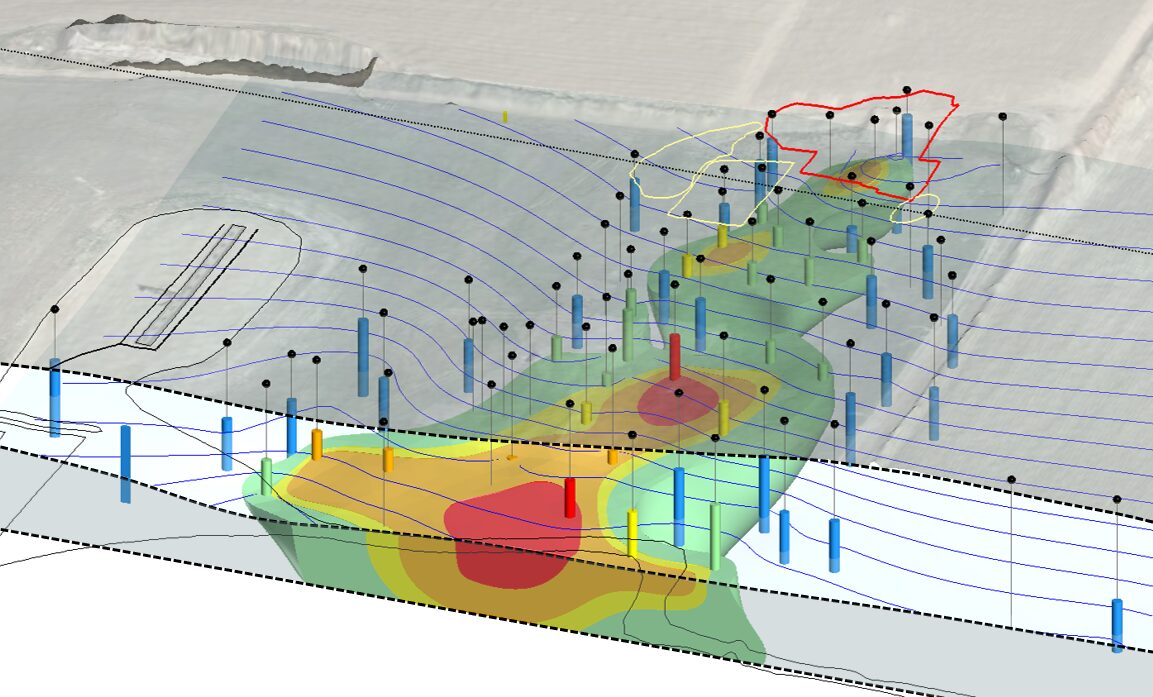
Development and Types of Conceptual Site Models (CSMs)
mars 15, 2025
There are vast resources, including publications and guidance documents on the topic of Conceptual Site Models (CSMs), and the term “CSM” can mean many different things to different people depending on their technical area of expertise and their expectation about the goal or purpose of the subject CSM

Comment faire passer un projet renouvelable de la planification à la construction
mai 15, 2021
Un changement sociétal généralisé est en cours – le moment est venu de réduire la dépendance aux combustibles fossiles et de commencer des projets d’énergie renouvelable. Parmi ceux qui devraient participer, il y a les entreprises de services publics. Ils peuvent faire preuve d’une bonne conscience sociale et bénéficier d’un retour sur investissement (ROI) notable en mettant en œuvre des projets d’énergie renouvelable. Dans ce chapitre, vous en apprendrez davantage sur le processus d’investissement dans les énergies renouvelables. Utilisez ce guide de développement de projets d’énergie renouvelable pour vous aider à démarrer.

Impacts environnementaux de la transition vers les énergies renouvelables
mai 15, 2021
La transition vers les sources d’énergie renouvelables aura des répercussions environnementales et économiques notables. Pour comprendre les implications possibles, vous aurez besoin d’une connaissance de base de la façon dont les combustibles fossiles affectent l’environnement.

L’EPA publie la règle du plan d’intervention des installations de la Loi sur l’assainissement de l’eau
juin 19, 2024
Cette mise à jour réglementaire est la première d’une série résumant la règle et la façon dont elle peut affecter votre installation.

PM2.5 Révision annuelle du SNQA
mai 7, 2024
L’EPA des États-Unis a publié une règle finale fondée sur son réexamen de sa décision de 2020 de conserver les normes nationales de qualité de l’air ambiant (NQAA) primaires et secondaires pour les matières particulaires (MP) sans révision.

Ce que vous devez savoir sur la règle finale de la MSHA sur la poussière de silice cristalline
avril 8, 2024
Les modifications réglementaires auront une incidence sur les exploitants miniers et protégeront mieux la santé et la sécurité des employés.

Les modifications apportées au Règlement sur le programme de gestion des risques (PGR) de l’EPA sont ici
avril 3, 2024
Les modifications apportées aux règlements du Programme de gestion des risques (PGR) ont été signées dans une règle finale le 27 février 2024 par l’administrateur de l’EPA, Michael S. Regan.

Évaluations des risques pour votre permis environnemental
février 1, 2024
Les évaluations des risques environnementaux aident à protéger les installations, les travailleurs et l’environnement. Apprenez-en plus sur l’importance des évaluations des risques environnementaux dès aujourd’hui.

Changes to EPA’s Risk Management Program (RMP) Regulations Are Coming
avril 14, 2023
Changes to the Risk Management Program (RMP) regulations were signed into a final rule on February 27, 2024, by EPA Administrator Michael S. Regan.

Phase I ESA ASTM Standard Update: The Wait is Over
Décembre 21, 2022
The USEPA published a Final Rule making the ASTM E1527-21 Phase I ESA standard AAI compliant.

Preparing Your RMP Facility for a Future of Extreme Weather
novembre 29, 2022
Facilities dealing with hazardous materials must prepare for extreme weather events that pose a risk to their operations and the community.

Data Requirements to Improve Statistical Decision Making
octobre 25, 2022
One goal of statistics is to draw meaningful inferences but your dataset must be large enough to provide technically-defensible and robust statistics.

Proactive Enforcement is Key in the EPA FY2022-2026 Strategy
octobre 19, 2022
A core element of the EPA FY2022-2026 Strategic Plan focuses on environmental compliance.

Preparing for EPA Inspections in Environmental Justice Communities
octobre 4, 2022
The EPA Office of Enforcement and Compliance Assurance Have Expanded Goals to Strengthen Enforcement and Protections Within EJ Communities

A Green Future for Stormwater Management
septembre 26, 2022
Green Stormwater Management is an effective strategy for flood control and pollution mitigation.

New National Emerging Contaminants Research Initiative
septembre 12, 2022
The Executive Office of the President of the United States announced a National Emerging Contaminant Research Initiative

Using Economic Impact Assessments to Share the Story of a Project or Facility
août 24, 2022
Economic Impact Assessments can demonstrate the positive effects a project has on the local economy.

Regulatory Compliance Items to Consider as Part of Transactional Due Diligence
juillet 19, 2022
Performing a limited environmental regulatory review can identify potential deficiencies with the environmental management of an acquisition.

Climate Action and Environmental Justice are at the Forefront of EPA’s Strategic Plan
juin 14, 2022
The EPA issued its Fiscal Year 2022-2026 Strategic Plan. Although the strategic plans emphases often change with administrations, we can be reasonably certain that the Plan reflects priorities through 2024.

CCR Removal and Its Effects on Soil and Groundwater Geochemistry
octobre 25, 2021
Many utilities are implementing corrective action at coal combustion residual (CCR) surface impoundments under Federal or State CCR Regulations, with implications for groundwater protection standards.

NJDEP Implements New Jersey Environmental Justice Law Through Administrative Order
octobre 5, 2021
On September 22, 2021, the New Jersey Department of Environmental Protection (NJDEP) Commissioner announced the issuance of Administrative Order (AO) No. 2021-25 to implement New Jersey’s Environmental Justice (EJ) Law. This order is effective immediately, and applicants seeking to site new major source facilities, renew major source permits or expand existing facilities with major source permits (e.g., Title V air permits) in overburdened communities are affected. There are more than 4.5 million people that live within 331 municipalities that are overburdened communities in the state of New Jersey.

OSHA’s Call for Comments on Mechanical Power Press Standard Changes
septembre 30, 2021
OSHA has recently published a call for comment regarding mechanical power presses. The reason behind OSHA’s request is that the American National Standards Institute (ANSI) consensus standard for mechanical power presses has been updated numerous times since the implementation of OSHA’s standard.

Managing EHS & ESG Risks Through Integrated Systems Today and Beyond
juillet 22, 2021
It has been more than 50 years since the development and establishment of the federal Environmental Protection Agency (EPA) and the federal Occupational Safety & Health Administration (OSHA) which were formed to protect our environment and workplaces across the United States. Significant laws, policies and regulations followed to establish the “regulatory programs” that all applicable businesses and entities must address and meet to ensure these compliance-driven legislative programs would create a foundation to protect our society.

EPA Resource Conservation & Recovery Act (RCRA) Corrective Action (CA)
janvier 11, 2021
The EPA RCRA Corrective Action (CA) Program recently provides a review and update on CA set in 2004 and new CA set for 2030.

EPA continues to aggressively address PFAS wastewater with two new strategies
janvier 4, 2021
EPA takes steps toward PFAS wastewater and storm water permitting, and analytical methods for testing.

2020 TSCA Chemical Data Reporting (CDR)
Décembre 7, 2020
Earlier this year, EPA revised the CDR rule to reflect the 2016 amendments to TSCA, including changes for foreign-owned businesses and the reporting responsibilities of suppliers and contractors, as well as an exemption for small businesses.

Ecological Risk of PFAS from AFFF-Impacted Sites
juin 30, 2020
The facts on evaluating exposure to wildlife

TRC and Environmental Partners, Inc. (EPI) have entered into definitive agreement for the sale of EPI’s business
novembre 25, 2019
TRC and Environmental Partners, Inc. (EPI) have entered into definitive agreement for the sale of EPI’s business

TRC Chosen to Provide Array of Integrated Services on Midship Pipeline Project
août 28, 2018
TRC has been awarded contracts for environmental consulting, engineering and field services and another for stem-to-stern Engineer, Procure and Construct (EPC) contract for three compressor stations.

Kent Kading
Kent Kading leads TRC’s Environmental, Health and Safety (EHS) Services across the organization. He is responsible for the planning, operations, execution and delivery of EHS Services performed by TRC EHS engineers, scientists and specialists to our clients. He has over 30 years of experience leading EHS permitting, compliance and management system services for clients world-wide. Kent has significant experience developing, implementing and evaluating multi-media EHS compliance programs and management systems for various industrial clients. He has conducted comprehensive compliance audits, environmental/health risk assessments, process safety management/risk management plan development and support and air and water permitting projects at a variety of industrial facilities. He also has provided industrial clients across the United States with a variety of EHS Services including: air quality permitting and compliance; wastewater permitting and compliance; stormwater permitting and compliance; hazardous waste management; EPCRA reporting and compliance; OSHA/state programs health & safety compliance with program standards, including confined space, lockout tagout, hazard communication, walking-working surfaces, electrical safety, hot work and other industrial safety programs. Contact Kent at KKading@trccompanies.com.

